

What Is the Success Rate of Canada Visitor Visas from India?
Visas are tricky, especially when it comes to international travel. Over the years, many aspiring travelers from India have considered Canada a preferred destination, but how often are these hopefuls granted their wish? The question on many minds is, what is the success rate of Canada visitor visas from India in?
Historically, the trajectory has been a concerning one. According to the IRCC, there was a notable dip in approval rates, plummeting from 82% in 2011 to 66% by 2020. This trend signifies tightening regulations or stricter criteria, making it even more crucial to stay updated on the current odds and factors influencing these decisions.
As the world evolves, so do visa policies, and understanding these dynamics is critical to a successful application.
How Does Canadian Visitor Visa Work?
With its picturesque landscapes and multicultural cities, Canada has always been a sought-after destination. For many, obtaining a Canadian visitor visa is the first step towards experiencing this vast country firsthand.
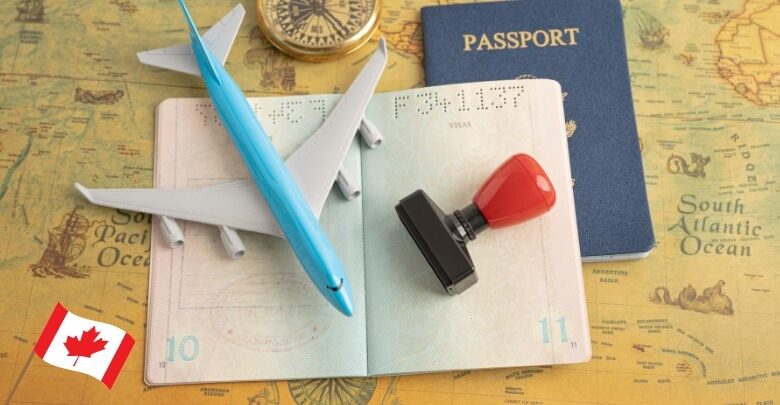
Every year, thousands flock to apply for a Canadian visitor visa , a document allowing tourists to explore the country briefly. It’s essential for visitors from countries that do not benefit from visa exemptions or Electronic Travel Authorization (eTA). Thus, prospective travelers should be aware of the requirements and processes involved.
The visa process involves several steps, from filling out an application to attending an interview if required. Document verification ensures a traveler’s intentions align with the visit’s purpose. A positive outcome grants access to Canada’s wonders, from the Rocky Mountains to urban delights.
However, it’s worth noting that a visitor visa doesn’t guarantee entry. Upon arrival, Canadian immigration officials determine the final eligibility based on various factors. Being prepared and informed for a hassle-free travel experience is always recommended.
Who Can Apply for a Canadian Visitor Visa?
A Canadian visitor visa allows many individuals from around the world to explore the country’s vast landscapes and vibrant cities. Understanding eligibility criteria is the first step toward a successful application.
- Tourists : Those wishing to explore Canada’s attractions can apply. They’ll need to provide a precise travel itinerary and accommodation details.
- Business Visitors : Professionals visiting for short-term business activities apply here. Their purpose can’t involve entering the Canadian labor market.
- People Attending Events : Attendees of conferences, workshops, or festivals in Canada use this visa. Event details and personal invitations may be required.
- Visiting family or friends : Individuals visiting Canadian residents can apply. A letter of invitation from the host is often essential.
- Transit passengers : Travelers with layovers in Canada might need this visa. They should prove their primary destination isn’t Canada but another country.
- Students in short courses : Those enrolled in courses or training under six months qualify. The study program’s details are crucial during the application.
Required Documents for a Visa to Canada
Applying for a visa to Canada requires careful preparation and submission of specific documents. Gathering the right paperwork ensures a smoother application process.
Application Form (IMM 5257):
This form captures details about the applicant’s background. It’s essential to fill it accurately to avoid potential delays. Always double-check information before submitting.
Proof of Sufficient Funds:
Applicants must prove they can finance their stay. Bank statements or pay slips might serve as valid evidence. Ensure documents reflect steady financial health.
Travel History:
Providing a history of previous travels strengthens the application. This can be shown using stamped passport pages or visas. It establishes credibility and genuine travel intentions.
Letter of Invitation:
If visiting someone in Canada, this is crucial. The letter should detail the relationship and the trip’s purpose. It also might need the inviter’s status proof in Canada.
Photographs as per Specification:

Photos should meet specific size and clarity guidelines. Typically, two recent passport-sized photos are required. They play a vital role in identification processes.
While the visa process might seem daunting, accurate and complete documentation can simplify it significantly. Having everything in order will pave the way for a smoother visa acquisition.
There’s a common question that going around the Canadian visitors, what is the success rate of Canada visitor visas from India? Canada’s visa policies have always intrigued prospective travelers. For many Indians, understanding the success rate of visa applications is vital before planning their Canadian journey.
Historically, visa approval rates have seen fluctuations. From 2011 to 2020, the rate declined from 82% to 66%, as reported by the IRCC. This shift reflected changing policies and tightened criteria for applicants.
In recent years, the visa landscape presented a mixed scenario for Indian applicants. While exact numbers are still emerging, early indications hint at a slight rise. Factors like international relations and economic considerations likely play a significant role.
Staying updated on success rates can aid potential travelers in gauging their chances. Adjusting applications in response to trends might improve the odds. An informed approach can, therefore, make all the difference.
How Long Does It Take to Receive A Canadian Visa?
The processing time for a Canadian visa varies based on multiple factors. Each aspect can either expedite or delay the visa acquisition process.
Type of Application
Different visa categories have diverse processing timelines. For instance, student visas might take longer compared to tourist visas. Ensure you’re aware of category-specific timelines.
Employment-based visas or those requiring additional checks can delay the process. Thorough research on the visa type can provide a clearer timeframe. Tailored approaches catered to specific visas can be beneficial.
Application Volume
Peak travel seasons might witness a surge in applications. Increased volume can inevitably extend processing times. Applying during off-peak times might expedite the process.
Additionally, regional visa offices might experience varying workloads. Some regions might process applications faster due to lower volumes. Being strategic about when to apply can offer advantages.
Completeness of Application
Incomplete applications or missing documents can cause delays. Ensuring every required document is included is paramount. Regularly consulting updated checklist guidelines is a proactive approach.
Errors or inconsistencies in submitted documents can also stall the process. A thorough review and potential professional consultation can minimize such hiccups. Always prioritize accuracy and clarity in submissions.
Additional Verification
Sometimes, applications may need further verifications. Security or health checks can extend the visa processing time. Being prompt in responding to such requests aids in faster processing.
In rare cases, interviews might be required, leading to extended timelines. Being prepared for such eventualities ensures no unexpected delays. Knowledge of potentially extended checks can help in better planning.
In essence, while standard processing times provide a guideline, individual experiences may vary. Being informed and proactive can help maneuver through the complexities of the visa process.

What Are the Fees Associated with Obtaining a Canadian Visitor Visa From India?
Securing a Canadian visitor visa from India comes with its set of associated costs. Being informed about these fees ensures smooth financial planning.
Basic Application Fee
This is a standard fee every applicant must pay. It covers the cost of processing the visa application. Usually, this fee is non-refundable regardless of the application’s outcome.
Biometrics, if required, might have a separate fee. This fee is for capturing the applicant’s photograph and fingerprints. Always check updated fee structures before application.
Biometric Verification Fee
Some applicants need biometric verification for their visas . This involves capturing fingerprints and a photo for identification. There’s a designated fee for this process.
It’s important to remember that this fee is separate from the basic application fee. Moreover, specific centers might have their charges. Ensure thorough research to avoid hidden costs.
Medical Examination Fee
Certain individuals might require a medical exam. The fee for this is determined by the clinic or doctor. It’s usually not covered by the standard application fee.
Factors like the type of tests and the clinic’s location can influence the cost. Being prepared for this expense aids in better financial planning. Choose clinics from the approved list for a hassle-free experience.
Third-Party Assistance Fee
If using an immigration consultant or lawyer, there’ll be additional charges. Their expertise might expedite and simplify the process. However, it’s important to budget for their services.
It’s advisable to confirm their charges upfront. Transparency ensures there are no surprise costs later on. Opting for registered and credible agents is also crucial.
The ins and outs of international travel and visa approvals can feel like going into uncharted territory. Over the last decade, visa approval rates have painted a variable picture for potential travelers. Central to this is the question, “What is the success rate of Canada visitor visas from India in?” Preliminary data indicates a slight uptick in the approval rate, hinting at a more favorable landscape for Indian applicants.
Such changes might be attributed to evolving international relations, streamlined visa processes, or even broader global events. As the dynamics shift, it remains paramount for applicants to stay updated, adapt their strategies, and optimize their chances for a successful visa journey to Canada.

Leave a Comment Cancel Reply
Your email address will not be published. Required fields are marked *
Save my name, email, and website in this browser for the next time I comment.

Don’t miss our future updates! Get subscribed today!
Sign up for email updates and stay in the know about all things Conferences including price changes, early bird discounts, and the latest speakers added to the roster.

Meet and Network With International Delegates from Multidisciplinary Backgrounds.
Useful Links
Quick links, secure payment.

Copyright © Global Conference Alliance Inc 2018 – 2024. All Rights Reserved. Developed by Giant Marketers Inc .
Chances of Getting Canada Tourist Visa after Refusal? Tips for Success in 2023
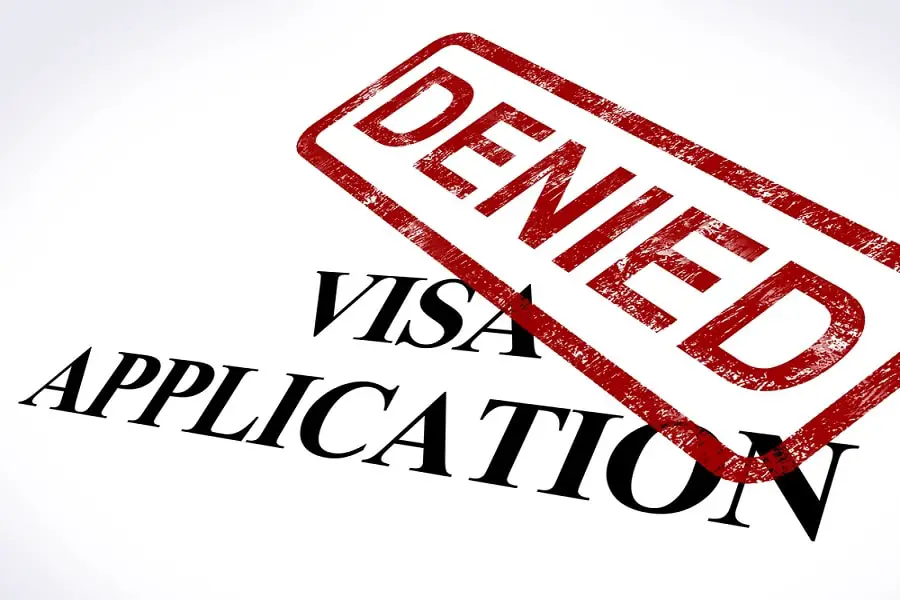
Are you considering visiting Canada ? The visa process for Temporary Resident Visas (TRV) can be complex. On the other hand, applying again for a Canadian visitor visa after a rejection can be daunting. However, having the right information at hand can significantly strengthen your chances of getting Canada tourist visa after refusal .
Canada is popular for its balanced selection system of aspirants wishing to enter Canada for a short-term holiday. Although, a visitor visa to Canada may seem like art as not everyone can acquire it.
Denial of a visitor visa to Canada can be because of a variety of reasons. There are circumstances when the Canadian visa officer may refuse a visitor visa simply because they are not mandated to provide extensive justification for the refusal. In any case, it has been proven that a visitor visa to Canada can be gotten after several previous refusals. A Canada visitor visa can even be gotten after a ban to enter Canada due to more severe violations.
1. Not Understanding the Test for Issuing a Temporary Resident Visa (TRV) / Visitor Visa
2. you submitted only the basic requirements on the ircc checklist, 3. you did not submit evidence of all of your ties to your home country to prove you will leave canada, 4. you did not submit affidavits to boost your application, 5. your invitation letter was not comprehensive enough, 6. using an unregulated immigration consultant or law firm, 7. you have not convinced the canadian government that you are not a security risk, 8. you haven’t provided enough proof that you will be able to finance yourself and your dependents, 9. you have misrepresented yourself.
- Re-Application Processes
Applying as a Tourist:
Applying as a business person:, applying to visit your children or grandchildren (super visa):, consider making an appeal, chances of getting a canadian tourist visa following a canadian visa refusal, 1. get your gcms notes from ircc, 2. correct the initial errors , 3. seek professional help, do i even need a visa, how soon can you apply for a visa after refusal, my canadian trv application was refused. what should i do next, why should i request for my visa file (i.e. access to information) from ircc (formerly: ircc), when i am refused a visa, important factors to note on your chances of getting canada tourist visa after refusal, faq’s – chances of getting canada tourist visa after refusal, what are your chances of getting canada tourist visa after refusal, comment below.
Canadian visa refusal can be disappointing as it can ruin work plans, travel plans, or even a new living arrangement. But don’t worry! After a visa refusal, there are some measures you could take to still get a Canadian visa .
Contrary to what people think, reapplying after a Canadian visa rejection or refusal is possible, depending on why the application was rejected initially. As the Canada visa refusal letter does not typically provide detailed information explaining why the IRCC officer refused your visa, your first step after a visa refusal is to get your GCMS Notes from IRCC, Canada.
There are different reasons an application for a visa may be denied based on the unique elements of each visa type. Read on to get success tips to improve your chances of getting Canada tourist visa after refusal .
The Top 9 Reasons for Canadian Visa Rejection
A Temporary Resident Visa (TRV) or visitor visa is an official document in your passport that shows Canadian authorities that you have satisfied admission requirements into Canada as a visitor, student, or worker. Canada requires citizens of some countries to have a TRV before they can enter Canada.
An IRCC officer at a Canadian embassy or High Commission often refuses Canadian tourist visa applications for the same reason other application types may be refused, including:
- The inability to prove adequate financial sources.
- Weak proof of intention to leave Canada after the duration of the anticipated trip.
- Suspicious travel or identity document.
Did you know that on average, one in four Canadian visa applications are refused? I bet you do not want to be added to the statistics!
The following are the most common mistakes that could lead to a Canada Temporary Resident Visa (TRV) application being rejected.
According to IRCC (Immigration, Refugees and Citizenship Canada), the rate of Canada’s Temporary Resident Visas (TRV) or Visitor Visa refusal has increased in recent years to more than one-in-four.
The Canadian government requires a visitor visa (or TRV) application from citizens of specific countries because the Canadian government regards citizens of those countries as more likely to overstay in Canada.
Visitors are not citizens nor Permanent Residents of Canada, but they may legally enter the country to visit family members or friends, for vacation/holiday, or to attend business meetings. A visitor to Canada has a set or restricted length of stay in Canada, and their visit is dependent on various conditions.
The first question in the Canadian visa officer’s mind when examining a TRV application is: “Will this person go back to their home country after the duration of their intended trip to Canada?”
The evidence you include in your application package (discussed later) will help prove your case that you will go back to your country of residence after your predetermined period of stay in Canada.
Additional considerations taken into account for a Canada visitor visa is your ability to finance yourself while in Canada. You should prove this by providing certified bank statements. Also, having an invitation letter (discussed later), is usually a good idea.
In general, the documents that Immigration, Refugees and Citizenship Canada (IRCC) requires for a standard visitor visa or TRV includes:
- Proof of financial support.
- Completion of IRCC’s forms.
- Passport photographs.
- Payment of the visa fees and biometrics fees (if applicable).
- Travel passport.
- Any additional documents requested by the local visa office . For example, your return ticket and/or travel itinerary.
- IRCC (formerly CIC) has made a very helpful checklist available online on their website; termed the “Document Checklist for a Temporary Resident Visa”.
Submitting only the basic requirements may not be enough to make your case that you will go back to your home country after visiting Canada. Therefore, it is advisable to submit as much proof as you can, beyond the minimum that the IRCC requires.
Keep in mind that supporting documents requirements can change based on your country of residence and/or your country of citizenship, as well as other circumstances.
Many visitor visa applicants do not consider their attachments to their home country and the proof that substantiates it. Lack of ties (e.g. family ties, social ties, economic ties, etc.) to your home country, could result in a Canada tourist visa refusal.
Ways of proving ties to your home country are showing documentation for things like your employment, real estate property, immediate family members, amongst others. You should include:
- Copies of title deeds of any/all real estate property you own or lease/rental agreements (if you do not own the property).
- Accurate employment letters or contracts that recognize you as a permanent employee of your employer. The letter should include the period of your employment, your role at the organization, and when you are required to return to your employment after your trip to Canada. Typically, the longer you have been employed with the same employer, the better as this shows some level of job security.
- Are you married (or in a common-law relationship) and/or have children and you will not be traveling with them to Canada? This will help establish your connections to your home country as a rationale that you will leave Canada to return to your family members. Include to your visa application proof of your marital status (such as a marriage certificate) or common-law status and your child(ren) birth certificates that have your name indicated as their parent.
- Do you take care of your aged family members (e.g. your parents)? Produce evidence of your responsibilities and any documentation to prove that your aged family members are highly dependent on you. Although, some connections to your home country, such as this one, maybe hard to document; you’ll have to do your best to substantiate this.
- If you are a leader or an active member of a community organization, church, mosque, or any similar organization; get evidence of your duties and roles. Include the documentation in your application.
PRO TIP: If your supporting documents are not in English. Ensure you have them translated to English by a certified translator and also include the untranslated version to your application.
A sworn affidavit is deemed legal evidence. Hence, if you have family or friends who can verify your claims of connections to your country of residence, you could have them swear affidavits, and add it as support to your visitor visa application .
In addition, you could include to your application a letter containing an explanation of the purpose of your trip and have it notarized.
An affidavit is a more compelling and persuasive proof to a Canada visa officer versus support letters. This is because there are legal repercussions for swearing a false affidavit.
Although this may not be a mandatory requirement, it is wise to arrange an invitation letter from your family or friends in Canada to support your visitor visa application .
Include the letter of invitation as part of your reasons for visiting Canada . It is a good idea for the content of the invitation letter to state that you will be staying with your host at his/her residence and that they will provide food and accommodation for you in Canada.
The invitation letter should not be too concise. It should be comprehensive and clearly state whether this person will provide free food and accommodation for you throughout your entire stay in Canada.
The letter should include your full name, birth date, confirm the travel dates you will be visiting in Canada and the purpose of your visit to Canada.
Furthermore, it is necessary that the invitation letter is signed by the individual inviting you and include their contact information (phone number and physical address) in case IRCC (Immigration, Refugees and Citizenship Canada) decides to confirm this person’s plan.
We will upload a Sample Canada Visitor Visa Invitation Letter here soon.
Sadly, this is a common reason why many Canadian visa applications are rejected or delayed. Fraudulent individuals/organizations take advantage of hopeful (and desperate) visa applicants, by offering things like free evaluations, special deals, and ‘guaranteed job offers and visas’.
According to Canadian law, it is a criminal offense for any individual (including an immigration consultant or lawyer) to indicate that a visa is guaranteed. Therefore, if you come across an agency that makes this kind of claim, this is a red flag. As the common saying goes: “If it’s too good to be true, it certainly is.”
These scams often result in fraud, identity theft, computer viruses, bank accounts, or credit card information theft. These scams may occur through phone calls, email, and/or the web (fake websites and fake news).
You should protect yourself by learning how to recognize common immigration scams .
For instance, there was a time that fake news stories started circulating online that Justin Trudeau (the Canadian Prime Minister) was begging the Kenyan and Nigerian presidents for one million skilled workers.
This led to various WhatsApp scams, leaving many people, victims of immigration fraud, having parted with their hard-earned money after paying “ghost agents” for fake job offers and visas.
Keep in mind that the onus is on you as the visa applicant to ensure that all supporting documents you include in your visa application are genuine. Hence, if you submit a fake job offer as part of your application, it could result in a Canadian visa ban.
In some circumstances, you may have to supply a criminal report (or police clearance certificate) indicating that you are not involved in any of the following:
- Subversion (for instance, political riots or work strikes),
- A member of an operation that violates human or international rights (such as war crimes, crimes against humanity, etc.),
- Violence or terror,
- Committed a crime (including driving under the influence of drugs or alcohol), or
- Involved in organized crime (such as money laundering, human trafficking, etc.).
If you are planning on traveling to Canada as a tourist/visitor (even those applying to study, work, or immigrate), you will need to provide sufficient proof that you are able to finance not just yourself but also any dependents that accompany you to Canada.
PRO TIP: A common reason for Canada visa refusal is when your financial documents (such as a bank statement) shows inconsistent balances and/or recent lump sum deposits.
If you have failed to satisfy any of the criteria mentioned earlier, it may be tempting to supply false documents or misinformation. Your documentation will go through a meticulous verification process by the IRCC officer and you will likely be caught.
Misrepresentation (document fraud) reduces the entire credibility of the visa application submitted, which results in a visa refusal.
Some examples of misrepresentations are: • Not declaring that you have been refused a visa for another country. Keep in mind that Canada shares information with several countries such as the United States of America (USA), Australia, amongst others. • Fake or altered supporting documents. Such as financial documents, marriage certificate, visas, birth certificate(s), and other similar documents.
If you use a reputable visa consultant or agent, part of their job should be to review your application your documents for you. Ready to start your Canadian visa application ? We are happy to help!
There may be other aspects that could result in your Canada visa refusal. Still, many fall within the range of those mentioned above.
If your application is denied, you could apply again for the visa or appeal the refusal.
If you are intending to reapply for a Canada visa, you want to ensure that your new application is an improved application from your previous submission. A proactive step is to first find out what the IRCC officer wrote on your visa file so that you can address it in your next application. Otherwise, your new application will be rejected.
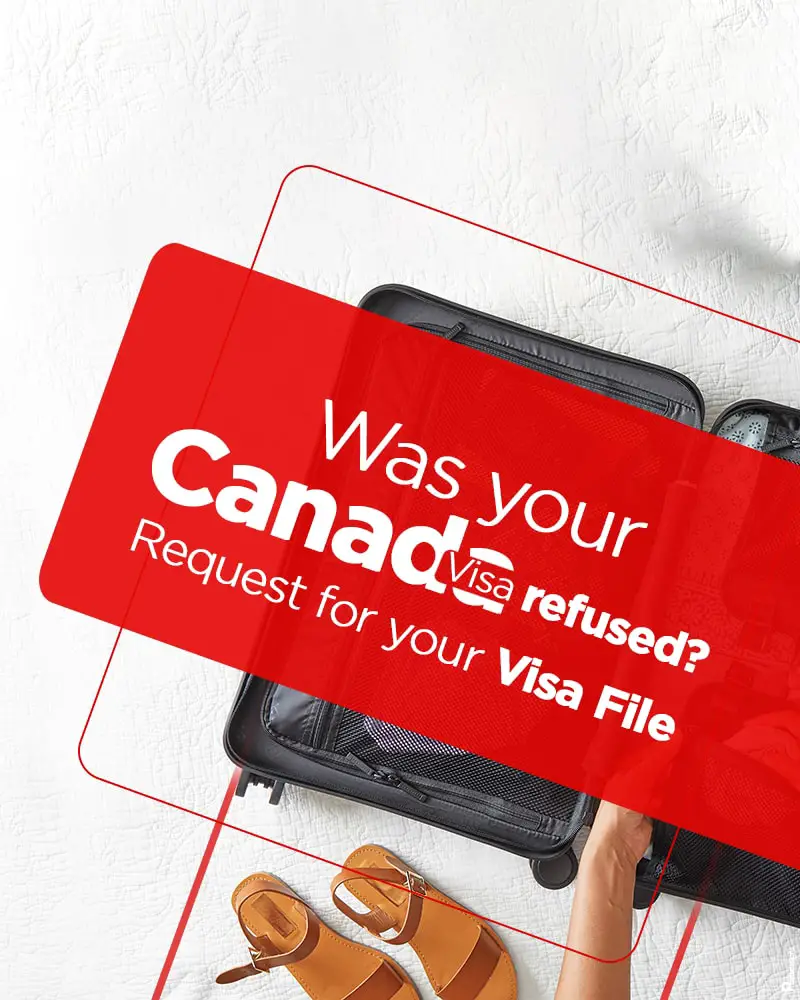
Chances of Getting Canada Tourist Visa after Refusal? Step-by-Step Process for Success on Your Next Application
The Canada visa refusal letter you receive may contain clues and critical information concerning the reasons your application was denied. Therefore, study it carefully and note whatever information you notice that you can use next time to strengthen your chances of getting Canada tourist visa after refusal .
Most times though, the refusal letter may contain only generic information. We usually recommend that whenever there is a visa refusal that you ask for access to the GCMS notes your visa officer made while examining your application. Getting your GCMS Notes will help you in addressing any hitches in your re-application.
Keep in mind that it is also possible that the new application will go through another visa officer who could have a different view of the documentation provided.
If your situation changes, you may reapply with updated information. Examples of your situation change include:
- You’re inadmissible , but you are applying for a temporary resident permit.
- You’ve applied for criminal rehabilitation and were approved.
- You were inadmissible for medical reasons, but those reasons have since changed.
- You’re eligible for deemed rehabilitation.
Re- Application Processes
After Canadian visa refusal, applicants should be conscious of specific procedures prescribed for filing a new application. You do not want to reply solely on what you did with your initial application, as Canada immigration rules are constantly changing.
Note what these steps are and ensure you follow them carefully to avoid any set-back a second time. The steps you take in your visa re-application will differ based on the type of visa you need and your country of residence/citizenship.
What Is the Nature of Your Journey?
Generally, temporary travelers to Canada fall under the category of visitor visas . Based on your reason for visiting, your application procedure may be slightly different.
This applies to those going to Canada for sight-seeing, leisure, relaxation, or other minor purposes, including those going to Canada for birth tourism . According to the government of Canada, to apply as a tourist, you must:
- be in good health,
- have a valid travel document, such as a passport,
- convince an immigration officer that you have ties with your country home—such as a job, home, financial assets or family—that will force you to go back to your home country,
- have no criminal or immigration-related convictions,
- have enough money for your stay, and
- convince an immigration officer that you will leave Canada at the end of your visit.
This applies to those traveling to Canada for business-related purposes or investment. According to Immigration, Refugees and Citizenship Canada (IRCC), business visa applicants must have:
- Identification cards or proof of employment. This applies to employees.
- A letter of invitation from your prospective business partner in Canada, and
- Contact details for the person inviting you.
Additionally, you must show that:
- You meet Canada’s basic entry requirements.
- Your main source of income and profit, as well as a place of business, is not in Canada.
- You do not plan to invade the Canadian labour market.
- You have documents that support your application.
- You plan to stay for less than six months in Canada.
A super visa is open for those intending to visit their children or grandchildren in Canada. To qualify, you must demonstrate:
- An invitation from your Canadian based child or grandchild.
- Proof of your family relationship.
- Proof of finances.
- The purpose of your visit.
- Your ties to your home country.
Additionally, for Canada super visa applications, you must also:
- Acquire valid medical insurance coverage for at least a year.
- Provide a written statement from your child or grandchild that he or she will support you financially.
- Show that your child or grandchild in Canada meets a minimum income standard.
Depending on the circumstances of the case, you should also analyze your eligibility for an appeal, either with the Immigration Adjudication Division (IAD) or with the Federal Court of Canada. You will typically need a lawyer in Canada to get this done for you.
If this pertains to your case, it may be best to enlist the help of a lawyer who specializes in Canadian visa applications to increase your chances of getting Canada tourist visa after refusal .
Know, however, that the appeal is only valid for a specific period and should be acted upon immediately.
Pay attention to your relationship to country of citizenship and initial residence when applying for Canadian Visitor Visa , especially if you do not have real estate, children, or family in your home country.
Do not be worried about showing “too many” relevant documents in your visa application package. There is no “too many” in such situations. Do not be worried about telling the truth about your work, the availability of funds, and so on. The embassy will not punish you for informal employment, but it may refuse if there is no job at the time of applying.
After a Canadian visa refusal, candidates should be aware of particular procedures prescribed for filing a new application. Know what these measures are and ensure you follow them carefully to avoid any issue a second time.
Best Way to Avoid Consecutive Canadian Visa Rejections in 2021
Suppose a Canadian IRCC officer denies your TRV / visitor visa application? First, you will want to go through the usual protocol of reviewing the reasons for denial that was indicated in both your visa refusal letter and your GCMS Notes. Then, correct all mistakes, and gather any additional information and documentation before applying again.
PRO-TIP: If you are convinced nothing was missing on your initial application and that the visa officer committed an error, you may be qualified to appeal the decision. In such cases, you would likely want to involve a Canadian-based immigration lawyer .
If the reason for the refusal is a mistake on your application, you can amend the problem by making the proper changes.
Review the information you initially provided and supply the required data or supporting document. When doing so, ensure you have a good reason why this new information was not given in your first application. Otherwise, the IRCC officer may think that you are trying to game the system based on the new information you acquired from your GCMS notes. No explanation or poor explanation could result in another refusal.
There is a possibility that your Canada tourist visa was denied because you made some mistakes in your application, which resulted in your visa refusal.
Some typical examples are: • Poorly completed visa application forms. • Inadequate supporting documents are submitted. • Ignorance on the part of the visa applicant, which results in the applicant not answering the questions in the visa application form properly. .. and more!
These mistakes and much more can be avoided by making use of the services of an experienced and knowledgeable travel agent , consultant, or immigration lawyer. So, this is where the services of CanadaWiz comes in.
If you want to entertain the hope of visa application approval on another attempt, checking out your Canada visa file is necessary. An expert will look at your file to determine what factors prevented you from getting your visa based on Canadian Immigration laws . As the laws that apply to Canadian visa rejection can be quite complicated and ever-changing, it may be best to talk to a skilled Canada immigration professional who can give your case proper advice and support.
Supplemental Information – Chances of Getting Canada Tourist Visa after Refusal?
Based on your country of origin, you may not require a visa to visit Canada . Foreign countries that do not require any visa may need an Electronic Travel Authorization (ETA). However, US citizens can freely visit Canada without the need for any visa or an ETA. The Government of Canada’s immigration news and guidelines can help you know which applications you will need for your trip.
There is no stipulated waiting period for re-application. Except otherwise noted, you may reapply for a visa any time after your first rejection. However, submitting the same application a second time with no additional information will not change anything. You will still be rejected.
If your Canadian Temporary Visa (TRV) application was refused, we do not advise that you re-apply ‘blindly’. We recommend that the next action you should take is to request for your visa file (i.e. Access to Information & Personal Information Request) from Immigration, Refugees & Citizenship Canada – IRCC (formerly: Citizenship & Immigration Canada – CIC).
This is important because you cannot rely solely on the grounds (i.e. reasons) that were indicated in the visa refusal letter that was given to you by IRCC.
Keep in mind that only an authorized individual can make a request for Access to Information from IRCC. So that means, a visa applicant whose application was refused, will likely not be able to request for their visa file on their own.
The good news is that we offer Access to Information services (i.e. Canadian visa case file request), and therefore can assist you with requesting for your prior visa case file(s) from IRCC.
READ ALSO: How to Order GCMS Notes from Canada, IRCC
It is essential that you request for your visa file (i.e. Access to Information & Personal Information Request) from Immigration, Refugees and Citizenship Canada (IRCC) after a visa refusal because this gives you a better perspective on why your visa was refused.
The visa refusal letter that you were given by IRCC, is a general letter that they provide to all visa applicants whose visa was refused, and this letter typically has little information provided by the visa officer can choose from. So, the Canadian visa officer will usually choose the option(s) that closely aligns to the reason why your visa was refused, but this may not be the specific reason why your visa was refused.
However, if you request for your visa file, the exact and detailed reason(s) why your visa was refused will be contained in the visa officer’s notes of your visa file. So, once you are aware of the particular reason(s) why your visa was refused, you will then be in a better position to act accordingly.
Please note that only a Canadian Citizen or a Canadian Landed Immigrant (Canadian Permanent Resident) or a Canadian visa applicant that is resident in Canada, can request for a visa file from IRCC. So, if you are based in outside Canada and your visa application has been refused, that means that you cannot request for your visa file on your own; because you are not authorized to. Therefore, you should request your visa file online through CanadaWiz.
There is no one size fits all means to meet these requirements – it will vary in each situation based on why you want to come to Canada and how long you want to stay.
For example, suppose you want to visit Canada to attend a friend’s wedding, and you plan on staying for one week. In that case, you should be prepared to prove that you have the finances to take care of yourself and anyone else in your family travelling with you for that time, that you have already scheduled a return flight and that you need to go back to your home country to return to work.
In contrast, if you apply for a TRV for general tourism to travel to Canada , you want to stay for six months. Still, you only have $1,000 in savings to finance yourself for that period. You are likely going to face a visitor visa refusal.
You should be able to produce a valid reason for your stay and information about where you intend to visit, where you will stay and how you will finance your trip and accommodations in Canada.
If you have travelled often in the past, and have never overstayed in another country, that is a positive factor on your record. If you overstayed or you were deported from another country, it can be a negative factor depending on the strength of your general application.
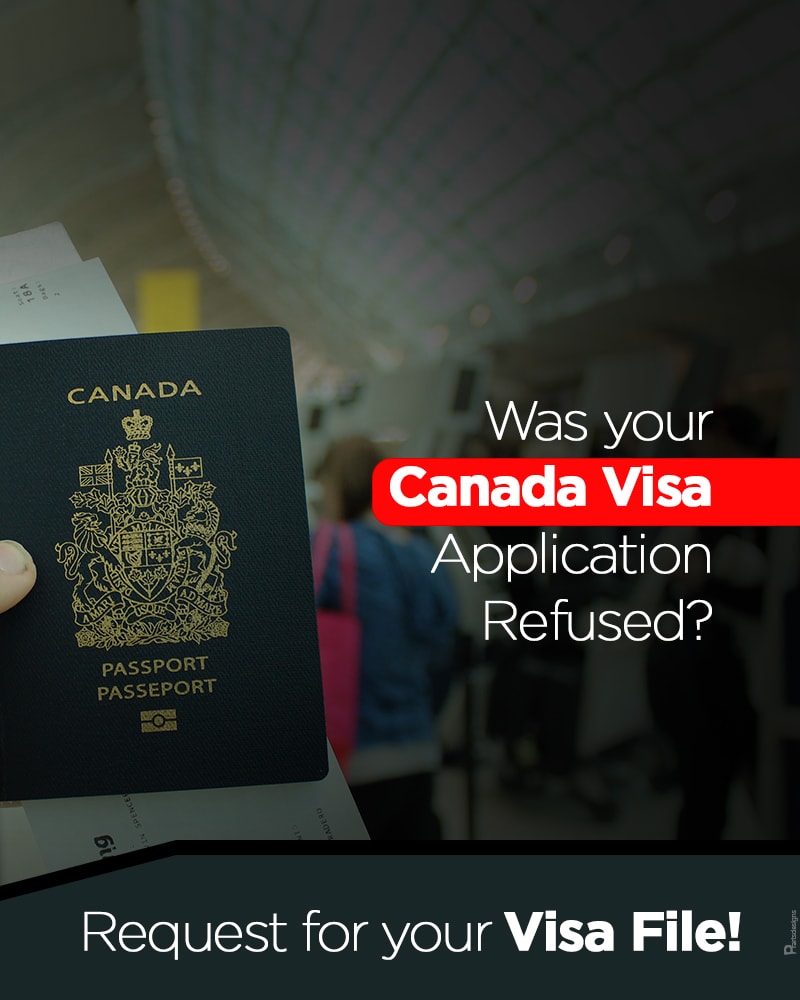
If your application to come to Canada is refused, you can reapply at any time unless your decision letter says you cannot. However, you should only reapply if you can include new information that you did not include before.
Canada tourist visa gets rejected for various reasons. To reduce the possibility of rejection, provide proof that you have the financial means to sustain yourself and your family during the duration of your stay in Canada. Evidence that you will return home. Prove that you will not work or study without approval. Provide proof of no criminal record. Prove you that you do not pose a security or safety risk to the Canadian public.
First, order your GCMS Notes from IRCC . Reapply if you have new information that you did not include in your initial application. If your feel your refusal was not warranted, ask for a judicial review through the Federal Court of Canada.
If denied a Canadian visa, the applicant is notified in the refusal letter of the law section that applies. The IRCC officer may also include additional relevant information.
A Canada visa refusal should not typically affect a US visa application. However, the US consular officer may scruinize the applicant’s US application more to ascertain if the reason for the Canada tourist visa refusal could also apply in the case of a US tourist visa.
If you have applied for your visa application through Post, you need it until your passport comes back. Once you get your passport back, then you can look inside. You will see an approved stamp. This means that your visa has been authorized, and you can then move to Canada.
A reason for a visa rejection could be presenting a passport that is not kept in good condition. Such cases can be when passport pages are detached or missing when the passport cover is damaged. In general, an individual foreign national may need to provide “Proof of Funds” in the amount of approximately CAD 1,230 a month, so if you plan to bring at least CAD 2,000 for this 30-day tourist visit, that should be adequate in terms of the Canadian visa application process .
‘Visa Refusal’ is the tag for an application that has failed at the decision-making stage. ‘Visa Rejection’ is the tag for an application that could not be in the decision-making phase and was returned to the applicant. In a nutshell, visa rejection happens at an earlier stage of the visa application process, while visa refusal is at a later stage.
Not necessarily. Just because you hold a USA visa (whether it’s a work or visitor visa ) does not mean you’ll be able to get a Canadian visa . No matter where you are from, you will have to follow the same procedures to obtain a Canadian visa (i.e. submit the required application and documents, etc.)
TRV visitor visas can be a bit complicated and you must be apply properly and on time as well. It’s okay to feel anxious, but you can utilize the help of a Canada visa consultant and the government of Canada website.
There are no guarantees about how fast your tourist visa application can be processed . Therefore, it is a good idea to start and submit your TRV application as soon as you decide that you will travel to Canada .
Like any immigration application, there is no assurance of success. However, avoiding the mistakes that we have outlined here will give your application a better chance of success. Good luck!
READ ALSO: Canada Study Permit Refusal – Purpose of Visit and Other Common Student Visa Rejection Reasons .
How Can We Help with Your Canada Visa Application?
We will provide you with counsel, guidance, and support for the entire visa application process. Our applicant assistants and advisers are competent with vast experience in advising applicants on visa applications.
We will : • Scrutinize your visa application documents accurately. • Provide you with a comprehensive explanation on how to increase your chances of obtaining your Canada visa. • Present your financial documents and that of your sponsor (if applicable) in such a way that is expected to give assurance to the Canadian visa officer that the funds are truly available for your trip in Canada. • Review your travel and visa application history, to enable us to determine how to package your visa application and what to highlight to your advantage when submitting your visa application.
If you follow our advice, you will have a higher chance of getting a visa approval, unlike when you apply for your visa on your own.
Have Questions? Feedback?

Charee Oisamoje is the founder of CanadaWiz. She leads the editorial team, which is comprised of subject matter experts that aim to create well-researched, highly detailed content related to studying, working, immigrating, and settling/living in Canada as a newcomer.
Charee's personal experiences as a Canadian immigrant and her professional competencies make her uniquely qualified on the subject matter.
Learn More >> About Page
🏆 Best Offers This Month
📌 get $3,000 free transfer and earn $75 referral bonus.
✔️ Get up to $3,000 CAD * Fee-Free transfer (or the equivalent of £2,000 in other currencies). ✔️ Earn $75 CAD** for every 3 friends you refer; they'll get a fee-free transfer of up to $800 CAD. ✔️ Multi-Currency Debit Card: Spend abroad without hidden fees. ✔️ Best and real exchange rates and lower fees than old-school banks and other money transfer services. *Your secret code will be automatically applied. **USD accounts earn $115 USD for every 3 friends you refer; they'll get a fee-free transfer of up to $600 USD).
📌 Low-Cost International Money Transfer with $30 Cash Bonus
✔️ Get a $30 welcome bonus for transferring $100* or more. ✔️ Get a 20 GBP welcome bonus for transferring 75 GBP* or more. ✔️ Fast: 95% of transfers are received by the recipient in minutes. ✔️ Better exchange rates and lower fees than most traditional banks and money transfer services. *This can be achieved over multiple transfers.
More Trending Posts
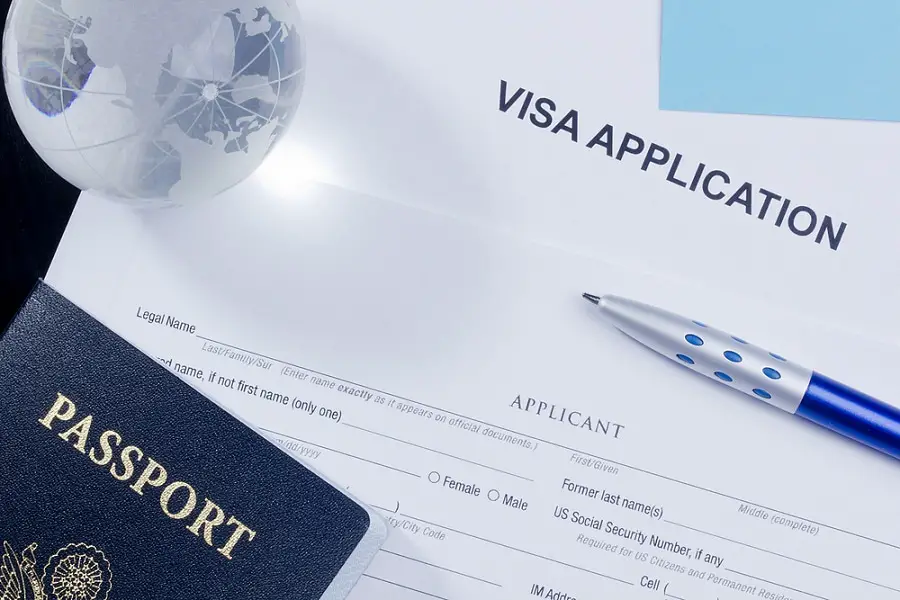
The Perfect SOP Letter for Canada Student Visa & Top Canadian Schools
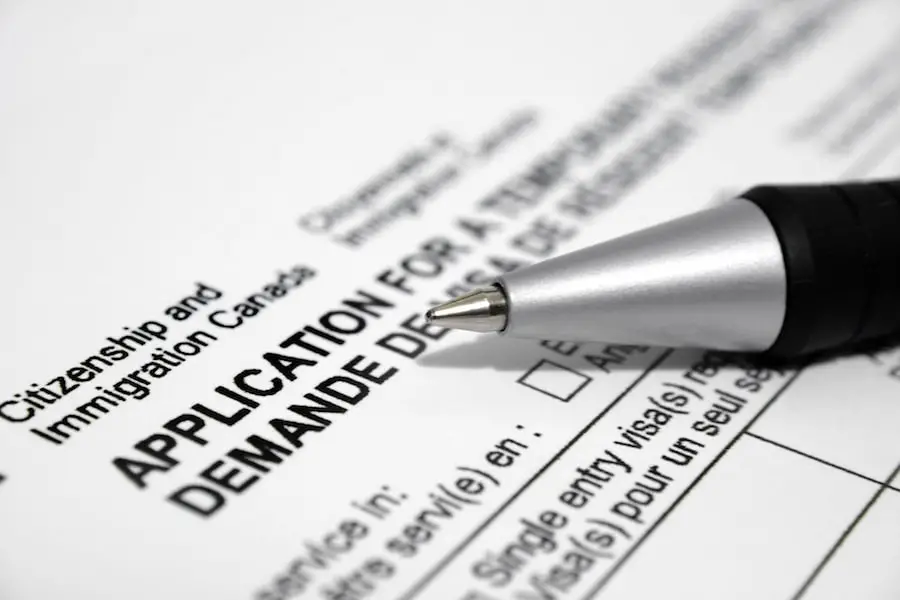
Canada Visa Requirements for Nigeria | Full List of Documents to Apply in 2023
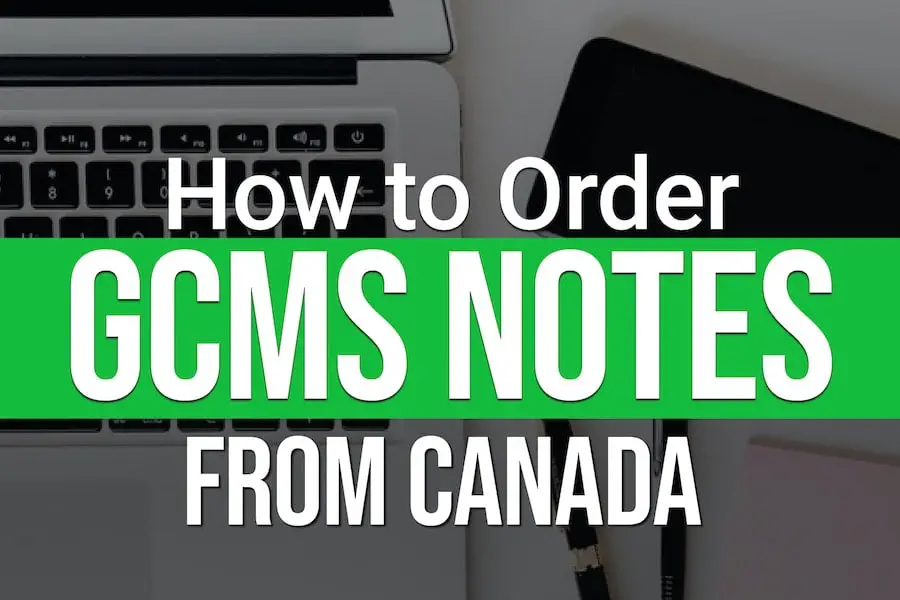
How to Order GCMS Notes from Canada, IRCC
11 thoughts on “chances of getting canada tourist visa after refusal tips for success in 2023”.
I want to apply to give bith in canada..pls can you put me through…i was once denied visiting visa about 3 yrs ago due to failure to proof ties back home…
Ebunoluwa Kikelomo, We are happy to assist with your Canada visa application. You can find out more about giving birth in Canada here . For your previous Canada visiting visa that you were denied, did you request your GCMS notes from IRCC ? If not, that is the first thing you’ll want to do before applying for a birth tourism visa to Canada.
I have applied for an outland spousal sponsorship , with sponsor in canada.Since the application will take too long ,I want to apply for Visitor visa.What are the chances of approval?
You’ll need to ensure that your visitor visa application is solid since you’ll be considered to have dual intent.
Dual intent exists when a foreign national who has applied or may apply for permanent residence in Canada also applies to enter Canada for a temporary period as a visitor. Having two intents (one for temporary residence and one for permanent residence) is legitimate.
The possibility that an individual seeking temporary residency might be granted permanent residence at some time in the future does not relieve him or her of the obligation to fulfill the requirements of a temporary resident, including the requirement to depart Canada on conclusion of their stay.
Oh very nice and helpful post.
Sadia, We’re so glad that you found our post helpful. Thank you for taking the time to leave a comment!
i was denied student visa based on no strong ties majorly for canada, i had been denied visa for usa severally . i tried uk visiting visa, same thing (stated that i might not be a genuine visitor) with no right to administrative appeal, whatsover… i am quite frustrated and exhausted…
Dear Sir/Madam, first thanks for your information, I have a question. I was rejected for a study Canadian visa 3 years ago now I immigrated and am working in Italy and I want to apply again for a visitor Canada visa. It is necessary to mention my previous rejection or not? and do I have a chance to accept?
Touhid, Yes, you have to mention all of your previous visa rejections. Keep in mind that if you decide not to disclose this, the IRCC officer will still see it from their old records, and this could result in your new visitor’s Canada visa being rejected due to misrepresentation. As long as you meet the necessary requirements for a Canada Temporary Resident Visa (visitor visa), then you have a chance of acceptance. Good luck!
Hi .. I was rejected 7 times for US F1 visa, and also rejected once for CANADA visitor visa in 2016 due to not maintaining visa status in USA. Can I apply again for CANADA visitor visa in 2023? How can I make my application more stronger than previous one?
The chances of getting a visa after being rejected are slim in a country like Canada. So they rejected me and tried again and again – to no avail, unfortunately.
Leave a Comment Cancel Reply
Your email address will not be published. Required fields are marked *
GET THE INSIDE SCOOP
Join other subscribers and receive exclusive tools, tips, and resources directly from CanadaWiz!
Subscribe Now
Get the latest Canada Immigration tips & hacks in your inbox.

- Meet our partners
- Advertise with us
Canada to expedite some visitor visas going forward

Canada will soon begin expediting the processing of certain visitor visas through its immigration system, Immigration, Refugees and Citizenship Canada (IRCC) recently announced as part of its strategic immigration report called “ An Immigration System for Canada’s Future .”
“We are … committed to ensuring priority visa processing [for] those from all over the world attending major conferences and events in Canada that are registered with IRCC”, said the immigration department, as part of the action plan outlined in the report.
The presented action plan was delivered alongside findings and other content collated by the federal government, led by IRCC, following consultations with various Canadian stakeholders. This comes as Canada looks to better adjust the national immigration system to meet the country's changing economic and demographic needs.
Discover if You Are Eligible for Canadian Immigration
Broken down into several groups, one of IRCC’s stated goals is to, through this new immigration strategy, further work at reducing wait times and improving service standards for newcomers to Canada.
Within this part of the government’s action plan, which falls under the larger goal of creating “a more welcoming experience for newcomers”, Canada has indicated an intention to expedite the processing of certain visitor visas, with a particular focus on applications made by newcomers seeking entry into this country “for tourism, major conferences and events.”
What other steps has Canada taken to aid visitor visa applicants?
This is not the first step Canada has taken to improve service for visitor visa applicants from around the world.
In June this year, IRCC added 13 additional countries to its “partial visa exempt countries” list, bringing the total number of countries on that list to 67. What this means is that, as of June 6, 2023, “travellers from 67 countries can apply for an electronic travel authorization (eTA) instead of a [visitor] visa.”
The advantage of doing so, to the benefit of eligible visitors looking to come to Canada temporarily, is that “most eTA applications” are approved much faster than visitor visas, often “within minutes” according to IRCC.
Visitor visa applications are on the rise in Canada
While most of the public focus regarding immigration is centred on permanent residence and the entry of long-term newcomers to Canada, IRCC also notes that temporary residents entering this country – including visitor visa applicants – are not an afterthought of the immigration department.
In fact, toward the end of 2022, IRCC made it clear that Canada is processing a significantly higher number of visitor visas across the country than in the past. In a news release from December 19 last year , the immigration department noted that they are working to “reduce backlogs and process visitor visas more quickly” in response to increased global desire to visit Canada.
On a month-by-month basis, said IRCC, “Canada is now processing more visitor visa applications than it did [before the COVID-19] pandemic.” Specifically, the immigration department noted that IRCC processed more than 260,000 visitor visas in November 2022 alone.
This number is notable because IRCC also noted that “the monthly average [of visitor visas processed] in 2019 was about 180,000 applications.”
In light of these numbers, Canada’s move to prioritize visitor visas through this new strategy will benefit many eligible newcomers looking to visit Canada in the future.
- immigration refugees and citizenship canada
- Strategic Immigration Report
- visitor visa
- Do you need Canadian immigration assistance? Contact the Contact Cohen Immigration Law firm by completing our form
- Send us your feedback or your non-legal assistance questions by emailing us at [email protected]

- Express Entry

- Sponsor Content
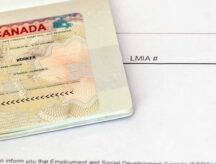
- Family Sponsorship
- Citizenship
- Life in Canada
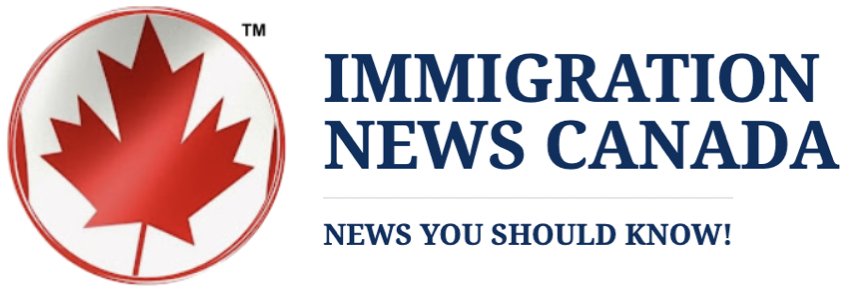
- IRCC Processing Times
- Express Entry Draws
- Canadian Citizenship
- Family Sponsorship
- Visitor Visa
- International Students
- Newcomers to Canada
- Work Permit
- Canada News

New IRCC Policy Clearing Up Visitor And Super Visa Backlog
- 3 July 2023, 9:55 AM EDT 16 February 2024, 10:07 AM EST
- Super Visa Canada , Visitors
IRCC published the details of new temporary public policy on June 29, 2023 which has been speeding up the processing of visitor visa and super visa applications.
Originally, this public policy came in effect with signature of Immigration Minister Sean Fraser on February 28, 2023 and is valid until December 31, 2023.
As per the latest available data, IRCC has been managing around 2.25 million immigration and visa applications.
Out of these, 1.3 million are temporary resident visa applications which includes study permits, visitor visa, super visa, and work permits.
New IRCC temporary policy is aimed at clearing the accumulating visitor visa and super visa inventory to increase Canada’s appeal to visitors, families, and business people.
As of now, this policy is only applicable to visitor visa or super visa applications submitted on or before January 16, 2023.
Under this new policy, visa officer may not assess whether a foreign national will leave Canada by end of the period authorized for their stay, while processing an application for a visitor visa or super visa.
This will save processing time by removing an extra task of assessing the above information and result in clearing of backlog at faster pace.
It is important to note that this specific reason has long been one of the most used refusal reasons for visitor visas .
Furthermore, this new policy only for visitor visas also allow visa officer an exemption to waive off “requirement for a foreign national not to be inadmissible for financial reasons.”
This is also one of the common refusal reasons that visa officers uses to refuse visitor visa applications stating “an applicant does not have enough funds to support their stay in Canada.”
High Demand Jobs In British Columbia That Pay Over $40/hour
Facilitating the processing of existing applications in the inventory by reducing eligibility standards would prepare Canada for a fresh start and a return to pre-pandemic processing timelines, maintaining our worldwide competitiveness in the future.
Automated IRCC Processing
Canadian immigration department has been using automated processing for administrative tasks to streamline and expedite processing of temporary resident applications.
As per the immigration department, they have been using advanced analytics and other automated technology to improve the processing of certain temporary applications.
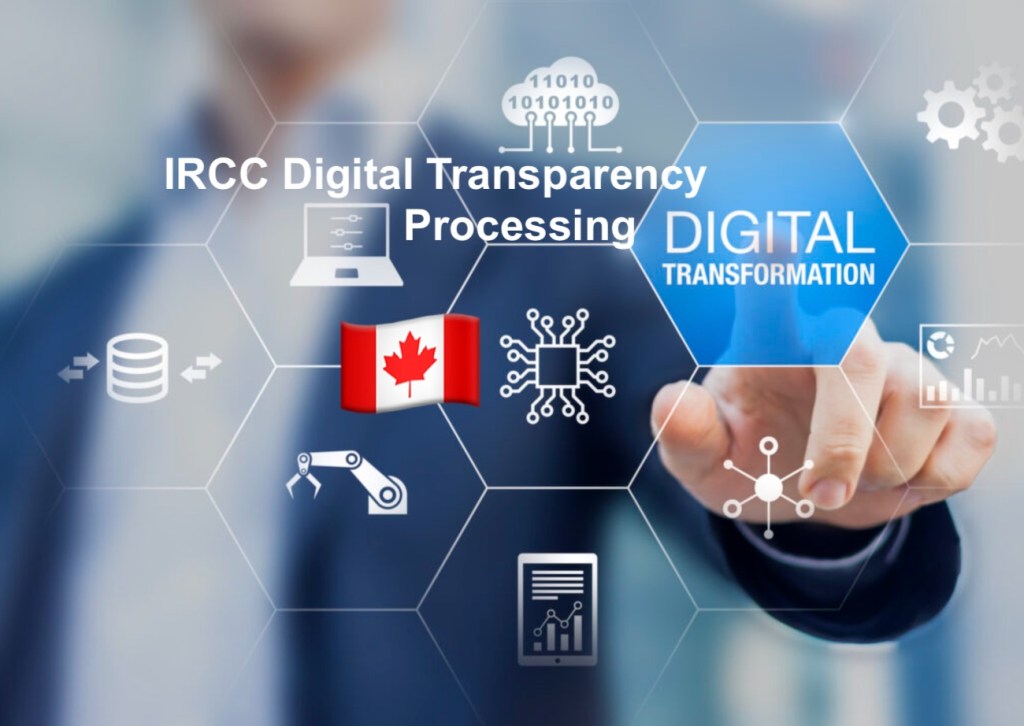
The new automated tools only aid in the sorting and processing of applications, but never refuses or suggests refusals.
According to our sources, Canadian immigration is currently using automated processing for visitor visas and visitor record (extension), but recently also processing study permit with same automation tools.
Previously, there have been a lot of concerns raised regarding the use of ‘CHINOOK’ to process applications and immigration pundits say they have noticed Chinook refusing a visa application.
However, the Immigration Department as well as Immigration Minister Sean Fraser has repeatedly kept their stance stating that an immigration officer always decides to approve or refuse applications.
How does automation tools process temporary visa applications?
When an application is submitted, the tool sorts your application and determine whether it fits the key eligibility conditions.
If it is eligible, the program will forward it to an officer who will check eligibility and make the ultimate decision.
To sort applications, the algorithm employs machine learning and data from past IRCC applications.
The tool aids in the elimination of repetitive and clerical tasks associated with evaluating each application.
It will aid in the processing of applications and the distribution of decisions.
What can you do to ensure smooth processing of visa application via automation?
To ensure that the new automated tool deems your application’s eligibility, you should:
1. Make certain that you submitted a full application. 2. Include the needed information on all forms. 3. Provide any supporting documentation in advance. 4. If your application contains anything unexpected or unusual, provide a letter of explanation. 5. Make your application and explanation letter as clear as possible.
Kamal Deep Singh, RCIC

Visitors & International Students Must Have These Documents At Airport
More Canadians Now Feel Immigration Levels Are Excessively High
2 New Ontario-OINP Draws Issues 244 PR Invitations | June 11
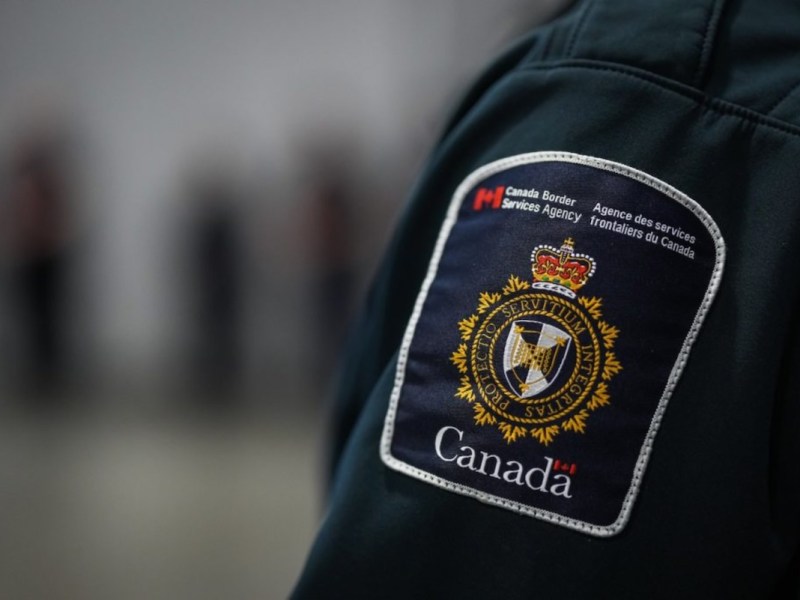
CBSA Strike Latest Update: All Strike Action On Hold Until Wednesday

More CEC Express Entry Draws Needed To Retain Skilled Workers

AAIP Alberta Opportunity Stream Eligibility and How To Apply

IRCC Working On 8 New PGWP Changes For International Students

2 CRA Benefits Payments For Ontario Residents Coming In June

In-Demand Jobs In Vancouver That Pay $30-$40 Per Hour

New IEC 2024 Draws Sent 1,757 Canada Work Permit Invitations

5 Ways To Increase Express Entry CRS Score To Boost Your Profile

Average Asking Rent In Canada Soars To New Heights In May
Loading…
Something went wrong. Please refresh the page and/or try again.
new immigration policy to fast-track visitor visa and super visa, canada immigration news, immigration news canada
- Express Entry
- Nova Scotia
- Prince Edward PNP
- Alberta PNP
- Ontario PNP
- Saskatchewan PNP
- Manitoba PNP
- British Columbia PNP
- New Brunswick
New measures will clear Canada Visitor Visa backlog by Feb

Immigration, Refugees, and Citizenship Canada (IRCC) have announced “aggressive measures” to reduce its massive backlog of immigration applications – and ease eligibility requirements for nearly half a million Visitor Visas.
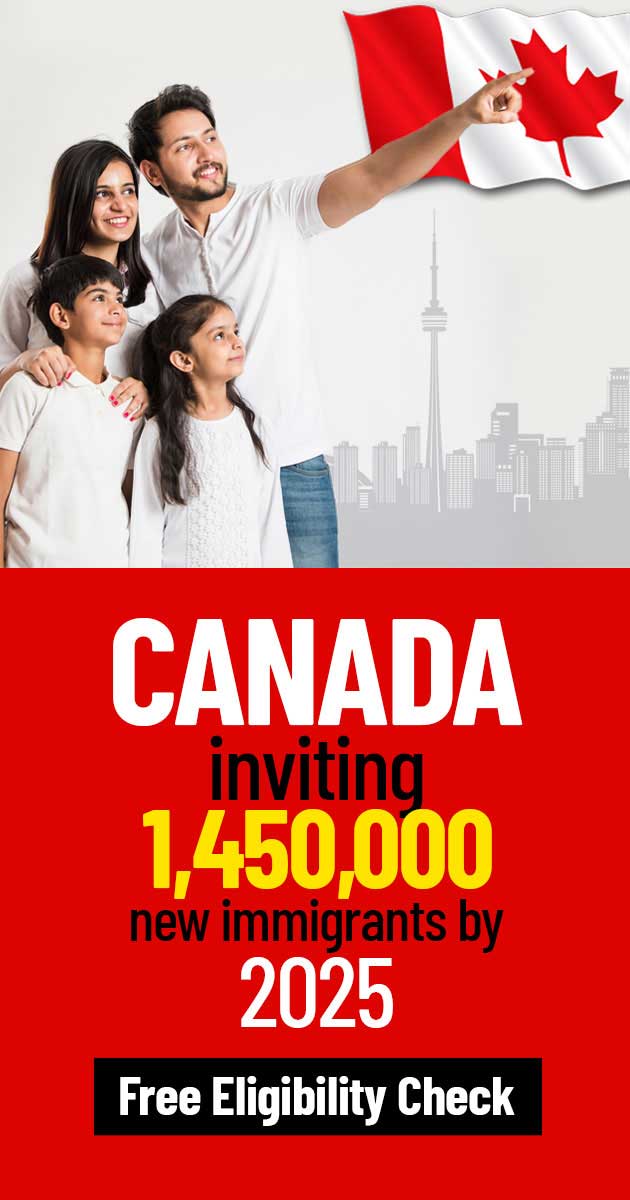
Calculate Your CRS Score in 60 Seconds
According to a report, IRCC is trying to significantly reduce, or even eliminate, its inventory of Visitor Visa applications by February 2023.
To reduce (eliminate) the number of Visitor Visa applications, IRCC is deliberating on two strategies.
- STRATEGY 1: The department would bulk process an estimated 195,000 applications. This would include a large number of applicants that require a Visitor Visa to immigrate to Canada .
- STRATEGY 2: Immigration Minister Sean Fraser would ease certain eligibility requirements for nearly 450,000 applications. By doing so, immigrants would not need to establish that they will leave Canada when their visa expires. However, they will still be subjected to admissibility checks.
The new measures will help reduce the massive backlog in the inventory – resulting in better processing time.
For detailed news: Click here !
Tags: Canada Tourist Visa Canada immigration Canada Visitor Visa canada visitor visa processing time apply for canada visitor visa canada visitor visa from india canada visitor visa checklist visitor visa latest news Canada immigration news
Related Posts

IRCC to accept PTE for Canada Visa applications in 2023!
By Eva Olsen [Published 04 Feb, 2023 | 07:57 AM] 43864

What is the Canada PR process for Indian Lawyers in 2023?
By Eva Olsen [Published 13 Apr, 2022 | 03:34 PM] 32772
By Eva Olsen [Published 20 Jan, 2023 | 06:48 AM] 32096
.jpg)
Canada immigration: Significant changes to NOC 2022
By Scarlett Wilson [Published 01 Nov, 2021 | 04:41 AM] 23432

Canada Extends Visa-Free Travel To 13 More Countries
By CIC Times [Published 08 Jun, 2023 | 04:10 AM] 19366
We welcome your feedback
Your email address will not be published. Required fields are marked *
Stay up to date with the latest news

- Business Visa
- Privacy Policy
Book a Consultation
- Free Phone Consultation +1 (514) 989-9700
- Immigrate to Canada
- CRS Score Calculator
- Express Entry Pool of Candidates
- Canadian Experience Class
- Federal Skilled Worker (FSW) Program
- Federal Skilled Trades
- Express Entry Draw
- When is the Next Express Entry Draw?
- Invitation to Apply (ITA)
- Electronic Application for Permanent Residence (eAPR)
- Proof of Funds for Express Entry
- Latest PNP Draws in Canada
- Farm Stream
- Alberta Express Entry
- Alberta Accelerated Tech Pathway
- Alberta Opportunity Stream
- Graduate Entrepreneur Stream
- Foreign Graduate Entrepreneur Stream
- Skills Immigration Stream
- BC PNP Tech
- Entrepreneur Immigration Stream
- Farm Investor Pathway
- Skilled Workers in Manitoba
- Skilled Workers Overseas
- International Education Stream
- Business Investor Stream
- Express Entry Labour Market Stream
- Entrepreneurial Stream
- Post-Graduate Entrepreneurial Stream
- Skilled Worker Applicants with Employer Support
- New Brunswick PNP – Information Sessions
- Express Entry Skilled Worker Category
- Skilled Worker Category
- International Graduate Category
- International Entrepreneur Category
- International Graduate Entrepreneur Category
- Priority Skills NL: In-Demand Academic Path
- Priority Skills NL: In-Demand Work Path
Express Entry
- Employer Driven
- Critical Impact Worker
- Skilled Worker
- Business Driven
- Entrepreneur
- Nova Scotia Demand: Express Entry (Closed)
- Nova Scotia Experience: Express Entry
- Entrepreneur Category
- Physician Stream
- Nova Scotia Labour Market Priorities
- Nova Scotia Labour Market Priorities for Physicians
- Occupations In Demand
- Ontario’s Express Entry Streams
- Employer Job Offer
- Masters Graduates
- PhD Graduates
- Regional Immigration Pilot
- PEI PNP Express Entry
- Business Impact
- Work Permit
- Labour Impact
- Skilled Worker in PEI
- Skilled Worker Outside Canada
- Critical Worker
- International Graduate
- International Skilled Worker
- Saskatchewan Experience
- Saskatchewan Entrepreneur and Farm
- Yukon Express Entry
- Business Nominee
- Yukon Community Pilot
- Immigrate to Quebec
- Regular Skilled Worker Program (RSWP)
- Quebec Experience Program (PEQ)
- Quebec Entrepreneur Program
- Quebec Self-Employed Worker Program
- Quebec Investor Program – QIIP
- Certificat de Selection du Quebec (CSQ)
- Quebec Immigration FAQ
- Confirmation of Permanent Residence (COPR)
- Permanent Resident Card (PR card)
- Permanent Resident Card Renewal
- Permanent Resident Travel Document
- Residency Obligations
- Canadian Experience Class (CEC)
- Atlantic Immigration Program
- Rural and Northern Immigration Pilot
- Agri-Food Pilot
- Home Child Care Provider Pilot
- Home Support Worker Pilot
- Past Caregiver Programs
- Canada Immigration FAQ
- Moving to Canada from the USA
- Work in Canada
- Business Visitors
- Labour Market Impact Assessment (LMIA)
- Facilitated LMIA (Quebec) List of Occupations
- Canada Global Talent Stream (GTS)
- Intra-Company Transfers
- CUSMA (formerly called NAFTA) Work Permit
- Working with CSQ
- CETA Work Permits
- Post-Graduate Work Permit
- International Experience Canada
- Spouse Open Work Permit (SOWP) Canada
- Bridging Open Work Permit (BOWP) Canada
- Job Search Tool
- Social Media Presence Guide
- Canadian Resume Guide
- For Employers
- Study in Canada: Changes for 2024 -2026
- Study & Immigrate in Canada
- Canadian Designated Learning Institutions (DLI)
- Levels of Study
- Student Direct Stream (SDS) Canada
- Certificat d’acceptation du Quebec (CAQ)
- Refusals and Appeals
- International Students in Canada
- Extend a Study Permit
- Quebec Health Insurance Plan for International Students
- Student Accommodation
- Work While Studying
- International Students: Spouse and Family Dependent Visa
- Permanent Residence (PR) for international students
- Our International Student Program
Sponsorship
- Canada Sponsorship
- Inland Sponsorship
- Outland Sponsorship
- Spousal Sponsorship Quebec
- Child or Other Dependant Sponsorship
- Super Visa Canada
- Minimum Necessary Income (MNI) Requirements for 2024
- Canada Sponsorship FAQ
- Business Immigration
- Federal Investor Program (Terminated)
- Federal Venture Capital (Closed)
- Federal Entrepreneur Program (Terminated)
- Start-Up Visa Canada
- Federal Self-Employed
- Quebec Self-Employed
- About our Business Immigration Team
- Our Canadian Immigration Services
- Criminal Inadmissibility
- Temporary Resident Permit (TRP)
- Medical Inadmissibility
- Legal Opinion Letters
- DUI Convictions
- Criminal Rehabilitation
- Citizenship Requirements
- Citizenship Application
- Citizenship FAQ
- Canadian Economy
- Taxation in Canada
- Newcomers Services
- How to Find Accommodation in Canada
- Visitor Visa
- Business Visitor Visas
- electronic Travel Authorization (eTA)
- Canadian Immigration News & Updates
- Canadian Immigration Blog & Resources
- CLB Language Converter
- Visiting Canada Tool
- What is a NOC Code in Canada?
- How to Write a Reference Letter
- Educational Credentials Assessment (ECA) Guide
- Canadian Cover Letter Guide
- Canadim’s Employment Services
- Canadian Language Benchmark Guide
- Canadian Immigration Glossary
- See all guides & FAQs
- Refugees & Humanitarian
- Canadian Immigration Processing Fees
Visiting Canada
Top Reasons Behind Canada Visitor Visa Refusals
Canada attracts millions of visitors each year. However, securing a Canadian Visitor Visa is not always a straightforward process. Despite the welcoming nature of the country, visa refusals are not uncommon.
Understanding the factors influencing Canada Visitor Visa refusals is essential for prospective visitors aiming to comprehend potential pitfalls and navigate the application process more successfully.
1. Failure to Provide Proper and Accurate Supporting Documents:
To address this issue, applicants must meticulously review the visa requirements, ensuring the inclusion of all necessary documents in their submission. Double-checking the application checklist provided by immigration authorities and seeking professional assistance, if needed, can help compile a comprehensive and accurate set of supporting documents.
2. Failure to Show Financial Support:
Demonstrating financial stability requires presenting thorough documentation of income, assets, and financial commitments. Providing recent bank statements, employment verification letters, and details of any sponsorships can significantly strengthen the application. Adequate preparation and clear documentation will assure visa officers of the applicant’s ability to cover expenses during their stay in Canada.
3. Failure to Meet International Security Standards:
Applicants with a criminal background should be transparent in disclosing their legal history. Alongside the visa application, it is crucial to submit a comprehensive criminal record check and any documentation supporting rehabilitation efforts. Seeking legal advice to address these concerns and presenting a convincing case of rehabilitation is essential for a positive outcome.
4. Failure to Meet Health Standards:
To overcome health-related concerns, applicants should provide a detailed medical history, including vaccinations, and undergo any required medical examinations. Attaching a letter from a certified healthcare professional affirming good health can help alleviate the visa officer’s apprehensions. Timely completion of medical examinations and accurate documentation are key to overcoming this obstacle.
5. Doubts About Applicant’s Intentions:
Clear communication about the purpose of the visit is crucial. Applicants should provide a detailed itinerary, explaining the reasons for the trip and outlining plans during their stay. Supporting documents such as flight reservations, hotel bookings, and a comprehensive travel itinerary can help dispel any doubts about the sincerity of the applicant’s intentions.
6. Lack of Ties to Home Country:
To establish strong ties to the home country , applicants should submit evidence of employment, such as confirmation letters and pay stubs, along with documentation highlighting family dependencies and property ownership. Presenting a compelling case that illustrates a solid connection to the home country enhances the likelihood of a successful visa application.
7. Refusal Based on Previous Travel History:
Applicants with a history of visa refusals or overstays should provide a detailed explanation of past issues and demonstrate corrective actions taken. Submitting proof of compliance with visa regulations in subsequent travels and emphasizing a commitment to adhering to Canadian immigration laws can mitigate concerns about previous travel history.
8. Refusal Based on Misrepresentation:
To avoid misrepresentation issues , applicants must thoroughly understand the application requirements and provide accurate information. Carefully reviewing forms, seeking guidance if needed, and ensuring that all information is truthful and complete is crucial. Transparent and honest communication is key to avoiding complications related to misrepresentation.
9. Overstaying Status:
Maintaining a clean immigration record is essential. If there is a history of overstaying, applicants should demonstrate a clear adherence to visa regulations in subsequent travels. Providing documentation of timely departures and compliance with immigration laws will strengthen the case and increase the chances of visa approval.
10. Illegal Status in the Country of Residence:
Establishing legal residency in the home country is paramount. Applicants must resolve any illegal status issues before applying for a Canadian Visitor Visa. Providing proof of legal residence, such as residency permits or visas, is crucial to assure Canadian authorities of the applicant’s commitment to abiding by the law. Seeking legal advice to rectify any residency issues is advisable for a successful application.
While obtaining a Canadian Visitor Visa may seem challenging, understanding the common reasons for refusal can significantly improve your chances of success. Diligence, transparency, and adherence to guidelines are key to a successful application.
Embarking on the journey to Canada begins with a well-prepared visa application. To ensure your application stands the best chance of approval, consider consider taking our online assessment. Our expertise can guide you through the intricacies of the process, increasing the likelihood of a positive outcome.
Your dream Canadian adventure awaits—take the first step today!
Recent articles
Attorney Dery Blog | Immigration Tips
Common Express Entry Mistakes and How To Fix Them
We want to see you succeed in your PR application to Canada, so we have prepared this blog post for you to read before submitting […]
Immigration Tips | Newcomers to Canada
What to Do If Your Canada Visa Was Rejected
If your Canadian visa was rejected by Immigration, Refugee, and Citizenship Canada (IRCC), starting a life in Canada can seem hopeless. However, depending on the […]
Express Entry | Provincial Nominee Program (PNP)
Key Differences Between Express Entry and PNPs
Understanding the differences between the Express Entry system and Provincial Nominee Programs (PNPs) is essential for navigating Canadian immigration. While both pathways can lead to […]
Express Entry and Family Members: All You Need to Know
The Canadian immigration system understands the importance of keeping families together. For this reason, Express Entry applicants may include their family members in an application […]
Newcomers to Canada
First Steps to Immigrate to Canada: A Beginner’s Guide
Is there a unique successful path to immigrate to Canada? Discover the tailored steps that can lead you to success and find out how to […]
How to Get a Canadian Provincial Nomination for Express Entry
Provincial nomination certificates have become a popular route for immigrating to Canada, offering a significant boost in the Express Entry pool. With dozens of Provincial […]
Discover your Canadian immigration options. Get your free assessment now!
Our partner, Cigna, offers newcomers peace of mind. Get a free quote !
Find the best immigration program for you. Take our free immigration quiz and we’ll tell you the best immigration programs for you!
Immigration
An important update on canadian immigration processing times for 2023.

By Rebecca Major
Posted on August 29, 2022
Rate article
Share article.
This article was updated more than 6 months ago. Some information may be outdated.
Canada is taking big steps to reduce immigration processing times, with a hiring ramp-up and additional tools to get newcomers settled in Canada more quickly.
On August 24, 2022 the Canadian government released an important update on processing times for Canadian immigration applications in 2022 which continues to have an impact in 2023. Canada has accumulated an inventory of 2.2 million immigration applications, resulting in extreme processing delays. However, this number is down from the 2022 backlog of 2.4 million.

Find the best immigration program for your family

Get your questions answered by an expert
In the August 24, 2022 update, Immigration, Refugees and Citizenship Canada (IRCC) released updated processing data alongside measures for how the immigration department will reduce processing times and projected processing times for the rest of the year.
Let’s dive into the latest 2023 numbers.

Find the best immigration program for you
How many canadian immigration applications are waiting to be processed.
There are 2.2 million total applications in all IRCC inventories. These numbers are accurate as of November 3rd, 2023.
It is normal for Canada to have a high number of applications in its inventories at any given time. In fact, 1.26 million of the applications in the current inventory are still within IRCC’s service standards. The department strives to process 80 percent of applications within the service standards. Having more than 1 million applications awaiting processing is to be expected.
However, there are presently more than 923,500 million applications in the inventory—42 percent of applications—that have exceeded IRCC’s service standards. Applications that exceed the service standard are considered “backlogged.” This means IRCC is falling far short of its processing goals.
Does IRCC have a plan to speed up immigration application processing?
Yes. IRCC is implementing several measures to work through its backlog of immigration applications including hiring more processing personal, utilizing AI technology and streamlining run of the mill applications.
IRCC is also implementing changes to keep processing times low over the long term. After receiving additional funding of $85 million from Canada’s Economic and Fiscal Update 2021 , IRCC has digitized applications for more programs and implemented technology-based solutions to support faster processing times over the long term.
IRCC has also committed to publishing monthly data on their website to keep applicants informed of anticipated processing times. In their August 24 announcement , IRCC published data from the month of July, providing detailed figures about current and projected processing times for different types of immigration applicants. Since August 2022, IRCC have maintained reporting on processing delays.
How long will it take to process my Canadian immigration application?
IRCC aim to offer processing within service standards to 80% of applications. Latest numbers from IRCC state the following service standards per application:
Work permit Work permit applications submitted outside Canada: All programs (excluding International Experience Canada) IRCC service standard: process applications within 60 days IRCC performance according to latest data: processed 71% of applications within the standard Current IRCC processing times for work permits (as of November 14th 2023) : This really depends on the country responsible for processing files. Examples include India at 11 weeks, Nigeria at 12 weeks, Philippines at 19 weeks, UK at 31 weeks and the USA at 11 weeks.
Work permit extensions submitted in Canada IRCC service standard : process applications within 120 days IRCC performance according to latest data : processed 75% of applications within the standard Current IRCC processing times for work permit extensions (as of November 14th 2023): 137 days
Work permit applications under International Experience Canada IRCC service standard : process applications within 56 days or less IRCC performance according to latest data: processed 78% of applications within the standard Current IRCC processing times for IEC work permits (as of November 14th 2023): 4 weeks
New study permit applications submitted outside Canada IRCC service standard: process applications within 60 days IRCC performance according to latest data : processed 64% of applications within the standard Current IRCC processing times for study permits (as of November 14th 2023): 11 weeks
Study permit (new permit and extension) applications submitted in Canada IRCC service standard: process applications within 120 days IRCC performance according to latest data: processed 94% of applications within the standard Current IRCC processing times for study permits in Canada (as of November 14th 2023): 4 weeks for new applications and 139 days for extensions.
Visitor visa and electronic travel authorization (eTA) IRCC service standard: process applications within 14 days IRCC performance according to latest data : processed 36% of applications within the standard Current IRCC processing times for Visitor visas and ETA’s (as of November 14th 2023): For visitor visa’s this really depends on the country responsible for processing files. Examples include India at 29 days, Nigeria at 512 days, Philippines at 32 days, UK at 271 days and the USA at 21 days. ETA’s are currently being processed in 5 minutes.
Canadian Experience Class (CEC) (via Express Entry) IRCC service standard: process electronic applications within 180 days IRCC performance according to latest data : processed 71% of applications within the standard Current IRCC processing times for Canadian Experience Class applications (as of November 14th 2023): 5 months
Federal Skilled Worker (FSW) Program (via Express Entry) IRCC service standard: process electronic applications within 180 days IRCC performance according to latest data : processed 0% of applications within the standard Current IRCC processing times for Federal Skilled Worker Program applications (as of November 14th 2023): 5 months
Federal Skilled Trades Program (via Express Entry) IRCC service standard: process electronic applications within 180 days (which doesn’t include the province or territory’s processing time) IRCC performance according to latest data : processed 0% of applications within the standard Current IRCC processing times for Federal Skilled Trade (FST) Program applications (as of November 14th 2023): Not enough information. This is because FST applicants do not fair well within the Express Entry pool due to the equivalency of their trade education. For FST applicants to receive an invitation to apply, there needs to be more FST specific Express Entry draws.
Provincial Nominee Program (paper applications) IRCC service standard: process all paper applications within 11 months (which doesn’t include the province or territory’s processing time) IRCC performance according to latest data : processed 19% of applications within the standard Current IRCC processing times for PNP non Express Entry applications (as of November 14th 2023): 15 months
Provincial Nominee Program (via Express Entry) IRCC service standard: process electronic applications within 180 days (which doesn’t include the province or territory’s processing time) IRCC performance according to latest data : processed 20% of applications within the standard Current IRCC processing times for PNP non Express Entry applications (as of November 14th 2023): 8 months
Quebec-selected skilled worker program IRCC service standard: process applications within 11 months (which doesn’t include the province’s processing time) IRCC performance according to latest data : processed 5% of applications within the standard. Current IRCC processing times for Quebec Skilled Worker Program applications (as of November 14th 2023): 13 months
Family sponsorship Family Class Priority (Overseas – spouses, common-law partners, conjugal partners and dependent children) IRCC service standard : process applications within 12 months IRCC performance according to latest data : processed 53% of applications within the standard Current IRCC processing times for sponsorship application (as of November 14th 2023): For spousal sponsorship applications, processing times ranges from 10 to months 13 months. If the province of Quebec is involved in the application, the processing delays are substantially more.
Permanent Residence applications: Processing Times
As of November 3, 2023, Canada had a total of 646,900 permanent residence applications awaiting processing. Of these applications, 362,300 (56 percent) were within IRCC’s service standards for processing times. This shows an improvement of almost 10 percent when looking at 2022 numbers.
Processing times for Canadian citizenship applications
As of November 3, 2023, Canada had a total of 274,600 citizenship applications awaiting processing. Of those, 216,400 (79 percent) were within IRCC’s service standards for processing. This shows an improvement of 14 percent compared to 2022 numbers.
Processing times for temporary residence applications
As of November 3, 2023, Canada had a total of 1,273,000 temporary residence applications awaiting processing. This includes applications for visitor visas, work permits, and study permits. Of those applications, 687,000 (54 percent) were within IRCC’s service standards for processing. This shows an improvement of 13 percent compared to 2022 numbers.
How many immigration applications will Canada process in 2023/2024?
2023 has been a frustrating year for many Canadian immigration applicants who have been waiting far longer than expected for their applications to be processed. One of the reasons processing times are so high is because Canada is processing record-high quantities of applications across many different categories. However data shows that IRCC are now processing applications faster than before.
In 2024, IRCC aims to admit the highest number of new permanent residents on record — 485,000. That’s up significantly from 2023 when 465,000 new permanent residents were admitted, and nearly double the annual immigration rates we saw earlier in the 21st century.
Canadian immigration processing times have been unpredictably slow over the past few years. With Canada’s upgrades to the immigration department’s processing capacity and commitment to more frequently publish transparent processing data, there are reasons to be optimistic about improvements in the months ahead. However, only time will tell if the government has taken adequate steps to get processing times under control and keep them there.
To be the first to find out about the latest Canadian immigration updates, create a free Moving2Canada account and subscribe to our newsletter.
About the author

Rebecca Major
Advertisement
Related articles

Express Entry Draw 297: CEC Draw on May 31, 2024

The Most In-Demand jobs in Canada in 2024
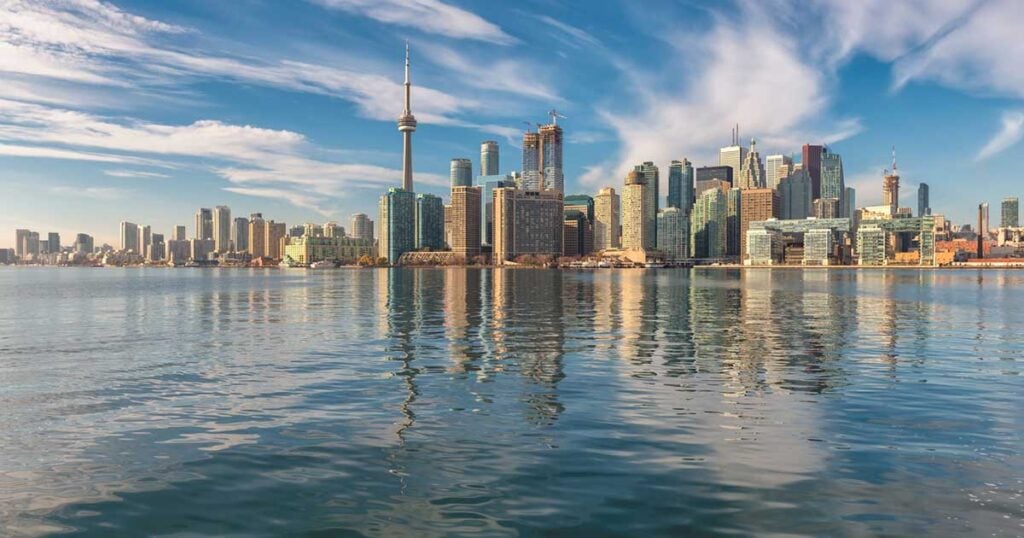
5 Canadian cities ranked among the best in the world


Express Entry Draw 296 on May 30, 2024 — Finally!

Canada Abroad
Canada Abroad is a transparent Canadian immigration consultancy with advice you can trust. Led by Deanne Acres-Lans (RCIC #508363), the team delivers professional, regulated, and efficient service.

Doherty Fultz Immigration
Led by Anthony Doherty (RCIC #510956) and Cassandra Fultz (#514356), the Doherty Fultz team uses their 40+ years of experience to empower you towards settling in Canada.

Perez McKenzie Immigration
Led by Jenny Perez (RCIC #423103), Perez McKenzie Immigration is a Canadian immigration consultancy based in British Columbia, with offices in Vancouver and Whistler.
Get your immigration questions answered by an expert

Take our free immigration quiz and we'll tell you the best immigration programs for you!

Get matched to job opportunities
Get matched to job opportunities from Canadian employers who are seeking to hire people with your skills.

Access our immigration roadmaps
Our immigration roadmaps will teach you the basics of Express Entry, study permits, and more! Take control of your own immigration process.
Unlock exclusive resources with a free account.

Need Auto Insurance?
Protect yourself on the road with an auto insurance policy that goes the extra mile, with our trusted partner Scotia Insurance .
Popular Topics
Search results
results for “ ”
Learn everything you need to know about Canadian immigration
If you need help with your immigration, one of our recommended immigration consultant partners can help.
Calculate your estimated CRS score and find out if you're in the competitive range for Express Entry.

Take the quiz

Your guide to becoming a student in Canada
Take our quiz and find out what are the top programs for you.

Watch on YouTube
This guide will help you choose the best bank in Canada for your needs.

Get your guide
News & Features
latest articles

Our Partners
Cookies keep our resources free for you, privacy overview.
- User Preferences: They remember choices you have made on the website, such as language, region, or font size, so you don't have to set them every time you visit.
- Enhanced Features: They enable enhanced features on the site, like remembering login details, so you don't have to log in every time you visit.
- Skip to main content
- Skip to "About this site"
Language selection
- Français
- Search and menus
Search The Daily
Visitor travel survey, second quarter 2023.
Released: 2023-11-24
Spending in Canada by international travellers totalled nearly $7.0 billion in the second quarter, almost twice the amount spent during the same quarter of 2022 ($3.6 billion). Total visitor spending was 11.1% higher in the second quarter of 2023 than the $6.3 billion spent from April to June 2019, before the COVID -1 9 pandemic.
Increased spending by US visitors
In the second quarter of 2023, US residents spent $3.8 billion visiting Canada, a 94.2% increase from the same quarter in 2022 ($2.0 billion). Spending by US residents in the second quarter of 2023 was up 20.0% from the same quarter in 2019 ($3.2 billion).
From April to June 2023, spending by US residents was concentrated in Ontario, British Columbia, Quebec, and Alberta, which together accounted for 91.3% of US-resident spending.
In the second quarter, the top three expenditures for US travellers continued to be accommodations ($1.5 billion), food and beverages ($931.9 million) and transportation within Canada ($560.0 million). However, spending on recreation and entertainment rose notably to $500.1 million, up from $274.7 million in the same quarter of 2019.
Spending by travellers from overseas countries similar to pre-pandemic level
In the second quarter of 2023, residents of overseas countries spent $3.1 billion while visiting Canada, which was similar to spending in the same quarter of 2019. Also, spending by overseas travellers was up sharply (+89.1%) from the $1.7 billion spent in the second quarter of 2022.
The majority (94.3%) of this spending in the second quarter of 2023 took place in Ontario, British Columbia, Quebec, and Alberta.
Residents of the United Kingdom ($417.7 million), India ($321.1 million) and Mexico ($293.2 million) together accounted for nearly one-third (32.8%) of total spending by overseas visitors in the second quarter.
Accommodations ($1.1 billion) was the largest spending category in the second quarter, followed by food and beverages ($793.3 million) and transportation within Canada ($422.9 million). Together, these categories represented nearly three-quarters (73.2%) of total spending by overseas visitors in Canada.
Chart 1 Total travel expenditures by international travellers, by province and territory, second quarter 2023

Note to readers
Due to the COVID -1 9 pandemic, collection activity relating to the Visitor Travel Survey ( VTS ) was suspended in March 2020 and estimates for the quarters from the second quarter of 2020 to the first quarter of 2023 were produced using a model based on 2019 VTS estimates adjusted with Frontier Counts results.
VTS collection activities partially resumed in April 2023. For the air commercial component, the Air Exit Survey ( AES ) resumed at five major airports. For the non-air commercial portion, estimates were calculated using a combination of AES data collected and historical non-air commercial data, as well as Frontier Counts.
Users are strongly advised to read the description of data sources, methods and limitations provided in the Visitor Travel Survey web page.
It is recommended that users interpret estimates for these quarters with the aforementioned considerations in mind. Comparisons of historical VTS results with current VTS results should be made with caution, due to the use of different methods to produce estimates for US and overseas residents visiting Canada.
All data in this release are expressed in current dollars unless otherwise noted.
Recent data on international travel to Canada are available in the monthly " Travel between Canada and other countries " release.
Contact information
For more information, or to enquire about the concepts, methods, or data quality of this release, contact us (toll-free 1-800-263-1136 ; 514-283-8300 ; [email protected] ) or Media Relations ( [email protected] ).
- 1 (800) 872-1458
- Sign In Register
- English Español 简体中文
- Fiance Visa
- Spousal Visa
- Family Visa
- Citizenship
- Ask My Attorney
- Tourist Visa
- Student Visa
Resource Center
Who Are We?
About RapidVisa Legal
What Do We Do?
Why Hire Us?
Trust Factors
Accolades & Memberships
In the Press
Income Requirement Calculator for U.S. Immigrant Visas
Referral Program
Country Information
Testimonials
Submit a Testimonial
RapidVisa Satisfaction Guarantee
Premium Review
Create My Free Account
Fiancé Visa »
Do I Qualify?
K-1 Fiancé Visa Statistics & Trends Report
What is a K1 Fiancé Visa?
K1 Fiancé Visa Petition Sample
K1 Fiancé Visa Forms
K1 Fiancé Visa Interview
K1 Fiancé Visa Approval Risk Factors
K1 Fiancé Visa Medical Exam Cost
IMBRA (Marriage Brokers)
Request for Evidence (RFE) Causes
Joint Sponsor
Same Sex K1 Fiancé Visa
Charge USCIS Fees to Credit Card
- Divorce & Annulment by Country
More Resources…
Immigration Document Library
Fiance Visa RFE-O-Meter™
Interactive Map
K1 Fiancé Visa Approval Odds Calculator
Get a K1 Fiancé Visa
Spousal Visa »
CR1 / IR1 Spouse Visa Processing Time, Cost and Info
CR1 Spousal Visa Forms
CR1 Spousal Visa Interview
CR1 Spousal Visa Checklist
CR1 Spousal Visa Medical Exam Cost
Same Sex CR1 Spousal Visa
K3 Spousal Visa
Income Requirement Calculator
Document Library
Get a CR1 Spousal Visa
IR-5 Parent Visa
IR-2 Visa for a Child
- More Resources…
- Embassy & Country Information
Create My Account
Renew/Replace Green Card
Adjustment of Status
Removal of Conditions
I-765 Employment Authorization Document
Adjustment of Status Overview
Adjustment of Status Forms
Adjustment of Status Medical Exam
Adjustment of Status Interview
Adjustment of Status Checklist
Adjust Status From B1/B2?
Request For Evidence (RFE) Causes
Adjustment of Status F.A.Q.
Green Card Scams
Removal of Conditions Early Filing Date Calculator
Adjustment of Status Eligibility Calculator
Apply for a Green Card
Citizenship »
U.S. Naturalization Overview
U.S. Naturalization Process
U.S. Naturalization Cost
Requirements for U.S. Citizenship
Disqualifiers for U.S. Citizenship
Timeline for U.S. Naturalization
U.S. Citizenship Forms
U.S. Citizenship Checklist
- U.S. Naturalization Interview & Skill Test
Early Naturalization Filing Date Calculator
- Country & Embassy Information
Apply for U.S. Citizenship
Ask My Attorney »
Have legal immigration questions?
Terms of Use
Tourist Visa »
Approval Odds
Student Visa »
Divorce & Annulment by Country
Get Started
More Resources...
Embassy & Country Information
U.S. Naturalization Interview & Skill Test
Country & Embassy Information
B1 B2 Visitor/Tourist Visa Odds of Approval
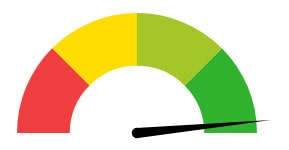
Is the U.S. B1 or B2 visa easy to get?
To find out just how high your chances of approval are for getting a B1 or B2 visa, take RapidVisa’s Tourist Visa Approval Odds Calculator . The Tourist Visa Approval Odds Calculator uses a proprietary algorithm developed by RapidVisa, using data from our customers and from statistics put out by the National Visa Center (NVC). The calculator is a helpful tool in knowing what percent of US tourist visas get approved and what is the rejection rate of a B1 visa. These numbers are designed for educational purposes only and should not be relied upon for your results. Many other factors may play into your approval odds that are not taken into account by this calculator, including your visa interview.
B1/B2 Tourist Visa Approval Odds Score Calculator
What country are you from?
Employment Status
Verifiable Income
Family Obligation
Family in USA
Property/Asset Ownership
Travel History
Visit Duration Desired
Means to Pay for Trip
Community involvement, previous b1/b2 visas, purpose of travel.
Traveling Companions
Based on your criteria, you have of being approved for a B1/B2 Visa.
Your Score:
For your information, of B1/B2 applicants from are refused or denied.
What are the chances of getting a B1 or B2 visa?
There are many factors that can improve or hamper your odds of approval for a U.S. tourist visa . The primary reason for the interview is to convince the consular officer that you have no intention of overstaying or immigrating permanently to the U.S.
Factors that may affect your odds of approval:
Employment status & verifiable income.
Being unemployed, or employed for a short period of time at a job may hurt your case. Having a long standing career in your home country, and working for the same company for more than five years may help your case.
Family Obligation & Family in the USA
If you are single without dependents, or have children that don't live with you, and you want to travel to the U.S., the officer may think you don't have enough reason to return to your country. However, having kids or dependent family members in your country is a great sign of strong ties. If you have family in the U.S., this could be a sign that you have a reason to stay in the U.S. and this may work against you. If you have a fiancé or a spouse in the U.S., your odds are lower, and you should probably opt for the fiance visa or spousal visa .
Property & Asset Ownership
Owing assets and especially property or businesses in your home country are a great sign of strong ties.
If you've traveled to other countries before, especially first-world countries and did not overstay your visa and returned to your country, this is a sign that you are trusted to follow the visa process. If you have traveled to a first-world country with strict immigration policies and didn't overstay your visa , this goes a long way to prove you are trustworthy.
Length of Trip
If you request to stay in the United States for a long period of time in your application, it may be a red flag that you intend to figure out a way to immigrate. If you request a more realistic time span, that is specific to the purpose of your trip, this is a point in your favor. For example, if you are traveling to a 5-day conference, requesting a trip for 3 months may look fishy. But if you only request 2 weeks, it makes more sense for that situation and is consistent with someone traveling for that purpose.
If you have no means to pay for the trip, and are relying on only a friend or family member to pay, this could count against you. However, if you have the means to pay yourself or if your company is paying for the trip, this signals that you won't become a burden to the state.
If you are heavily involved in your community, especially in a way that the organization would be deficient if you didn't return, this could help signal a strong tie. If you are a full-time college student enrolled in your country, this is good evidence you have an intention to return.
Of course, if you've been previously approved for a B1/B2 visa and entered the U.S., and returned to your country, this works in your favor. It proves you can be trusted not to overstay. However, if you previously overstayed, your odds of approval are lower.
The more specific and precise your purpose of travel is, the better your case for a travel visa. . If you are attending a specific conference in your profession, or attending a wedding, or watching an event like a concert or solar eclipse, or anything else that is very specific and has a convincing reason to be in a specific place at a specific time, this builds a better case.
Denial Rates by Country
What is the rejection rate of a B1 or B2 visa based on your home country? The following table is straight from NVC statistics showing the actual numbers for 2022. The country doesn't necessarily play a role in your likelihood of approval or denial. What's more likely is that people in high denial countries tend to not be qualified. Use our approval odds calculator to determine if you may have a good shot at approval or not.
Make progress today
Canada's Immigration Levels Plan 2024-2026
Under its immigration levels plan, canada is now looking to welcome 500,000 new immigrants annually in the coming years, which are the highest levels in its history. .
Canada's immigration goals are to strengthen the economy, reunite families, and help refugees. This comprehensive CanadaVisa page outlines everything that you need to know about Canada's Immigration Levels Plan.
Contact the Cohen Immigration Law Firm for Assistance
Table of Contents
Summary of canada's immigration levels plan, canada's immigration levels plan 2024-2026, why canada needs immigrants, overview of canada's immigration programs, contact cohen immigration law for assistance.
Each year, the federal department of Immigration, Refugees and Citizenship Canada (IRCC) releases a new Immigration Levels Plan which it uses to guide its operations.
In 2023, IRCC plans to welcome more than 465,000 immigrants to Canada. In 2024, Canada's newcomer target is 485,000 new permanent residents (PRs). In both 2025, and 2026 Canada will aim to welcome an additional 500,000 immigrants (in each year). The following table summarises Canada's immigration targets between 2024-2026 by immigration class:
Canada welcomes high levels of immigration to keep its economy strong.
Canada has one of the world's oldest populations and also one of the world's lowest birth rates. This creates economic and fiscal pressures. Canada has a low rate of natural population growth which results in low rates of labour force and economic growth. Low economic growth makes it difficult for Canada to raise the taxes it needs to support social spending on services such as education, health care, and other important areas that provide high living standards in the country.
As a result, Canada has been increasing its immigration levels since the late 1980s to increase its rate of population, labour force, and economic growth. Canada now depends on immigration for the majority of its population and labour force growth and a larger share of its economic growth.
Consider that Canada will have 9 million baby boomers reach the retirement age of 65 by the year 2030. This means that Canada will have fewer workers at a time when its social spending on health care will rise. To alleviate this challenge, Canada has been proactive by gradually raising its immigration targets for over 30 years now.
Canada has regularly welcomed over 200,000 immigrants per year since 1988. In recent years, it has decided to increase its levels to well over 400,000 per year. Canada's immigration rate now stands at nearly 1.2 per cent. In other words, Canada welcomes three times more immigrants on a per capita basis than then the United States of America.
Based on its demographic realities and its immigration trends, it appears likely that Canada will continue to gradually increase its immigration levels over the foreseeable future. Immigration will remain critical to supporting a healthy economy and fiscal situation in the country.
Moreover, a strong argument can be made that immigration's importance has increased due to the coronavirus pandemic. COVID-19 has weakened the Canadian economy in the short run and increased government spending on social services. In addition, Canada's birth rate fell to its lowest level ever of 1.47 children per woman in 2019. Given the low birth rate prior to the pandemic, and the chance the pandemic will reduce the birth rate even further due to economic uncertainty, Canada will become even more dependent on immigration for its population growth in the coming years. If Canada's birth rate remains low, then immigration will comprise an even larger share of labour force growth in the decades to come. Finally, Canada will need to strengthen its tax base through immigration to support government spending following COVID-19.
Economic immigration, which is a major driver of Canada’s economic growth, accounts for more than half of planned admissions through the multi-year levels plan.
Nearly half of projected economic admissions will be through the federal Express Entry system programs:
- the Federal Skilled Worker (FSW) Program
- the Federal Skilled Trades Class (FSTC) ; and
- the Canadian Experience Class (CEC) .
Canada’s Provincial Nominee Program (PNP) also plays an important role in terms of economic immigration. This program allows participating Canadian provinces and territories to nominate eligible immigration candidates who match local workforce needs for permanent residence.
The following are immigration programs included in Canada's Multi-Year Immigration Levels Plan:
Economic Programs
- Federal Skilled Worker (FSW) Program : This Express Entry-managed program is for immigrants with the requisite education, work experience, proficiency in English and/or French and other skills need to establish themselves economically in Canada.
- Federal Skilled Trades Class (FSTC) : The Express Entry-managed Federal Skilled Trades Class is for foreign workers with qualifications in a skilled trade.
- Canadian Experience Class (CEC) : The Canadian Experience Class is managed by the Express Entry system and welcomes expressions of interest from foreign workers with Canadian work experience or recent graduates of Canadian educational institutions working in Canada.
- Atlantic Immigration Pilot Program (AIPP) : The Atlantic Immigration Pilot allows designated Atlantic employers to recruit and hire foreign skilled workers or international graduates in the Atlantic Canada region (Newfoundland and Labrador, Prince Edward Island, Nova Scotia, and New Brunswick).
- Caregivers Program : Canada allows eligible foreigners caring for children and people with high medical needs the opportunity to apply for Canadian permanent residence.
- Federal Business ( Start-Up Visa Program and Self-Employed Person ): Federal business class programs allow foreigners who meet eligibility requirements the chance to run new or pre-existing businesses in Canada.
- Provincial Nominee Program (PNP) : This program allows participating provinces and territories to nominate eligible economic immigration candidates for Canadian permanent residence.
- Quebec Skilled Worker Program and Quebec Business : T he province of Quebec runs its own immigration system outside the federal system. The Government of Quebec's planned levels for 2019 to 2021 have yet to be determined.
Family Class Programs
- Spousal/Common-law Partner Sponsorship and Dependent Child
- Parent and Grandparents Program
Refugees and Protected Persons, Humanitarian and other
- Protected Persons in Canada and Dependents Abroad
- Privately-Sponsored Refugees
- Blended Visa Office Referred
- Government-Assisted Refugees
Cohen Immigration Law is a leading Canadian immigration law firm with over 45 years of experience. Cohen Immigration Law is comprised of over 60 Canadian immigration lawyers, paralegals, and other professionals. We are dedicated to helping people achieve their Canadian immigration goals. We assist in areas including skilled worker and business immigration, family sponsorship, work permits, study permits, citizenship, and inadmissibility. CanadaVisa.com was founded in 1994 as the online presence of Cohen Immigration Law. CanadaVisa has since blossomed into the one of the world's most trusted resources on Canadian immigration. Please reach out for assistance. We're happy to help:
Skilled Worker Assistance
Find out if you are eligible to immigrate to Canada through one of the country's over 100 skilled worker options.
Family Sponsorship Assistance
See if you are eligible to sponsor a loved one, or be sponsored by a Canadian citizen or permanent resident.
Other Immigration Enquiries
Contact us about work permits, study permits, business immigration, citizenship, and inadmissibility.
Latest News
Ircc conducts its first express entry draw for cec candidates since 2021.
Immigration, Refugees and Citizenship Canada (IRCC) has issued its first round of Express Entry invitations for Canadian Experience Class (CEC) candidates since September 14, 2021. Read on for the results of IRCC's May 31 Express Entry draw.
Canada's Express Entry Draw Results from April 24, 2024
Immigration, Refugees and Citizenship Canada (IRCC) has now conducted its second Express Entry draw this week. Here are the results of IRCC's Express Entry draw on April 24, 2024.
- Immigrate to Canada
- Express Entry
- Provincial Nominee Programs
- Quebec Immigration
- Other Federal Economic Programs
- National Occupational Classification
- Language Test Requirements
- Education Credential Assessment
- Immigration Levels Plan
- About the Immigration Department
- About the Immigration Minister
- Working in Canada
- TFWP & IMP
- Work Permit Process
- Work without a Work Permit
- Get Maintained Status
- Business Visitors
- Options for H-1B Visa Holders
- Tech Talent Options
- LMIA-Exempt Work Permits (IMP)
- LMIA-Based Work Permits (TFWP)
- Employer Compliance
- Family Class Sponsorship
- Spouse or Common-Law Partner
- Child or Other Dependent
- Parents and Grandparents
- Requirements for Each Program
- Study in Canada
- Get a Study Permit
- Study Pathways to PR
- Bringing your Family to Canada
- Working While Studying
- Post-Graduation Work Permits
- About Canadian Citizenship
- Benefits of Canadian Passport
- Apply for Proof of Citizenship
- Dual Citizenship
- Citizenship Ceremony
- Overcome Inadmissibility
- Temporary Resident Permit
- Criminal Rehabilitation
- Inadmissible Legal Opinion Letter
- Visiting with a Criminal Record
- Common Offences
- Charges Within Canada
- Authorization to Return to Canada
- Refusals and Appeals
- Canada Security Clearances
- Overcome Medical Inadmissibility
- Inadmissibility to Canada FAQs
- Canada Border Services Agency
- About Cohen Immigration Law
- How to Avoid Fraud
- Workers' Rights in Canada
- Temporary Resident Visas
- Tools and Resources
- Business Immigration Overview
- Entrepreneurs
- Self-Employed
- Getting Settled in Canada
- Opening a Bank Account
- How to Find Work
- Renting a Home
- Buying a Home
- Free Settlement Services
- Public Transportation
- Buying a Car
- Food and Grocery Options
- Buying Furniture
- How to Dress for the Weather
- TV and Home Entertainment
- Get to Know Canada
Language selection
- Français fr
Application for a Visitor Visa (Temporary Resident Visa - TRV)
You need to give your biometrics.
In most cases, you now need to give your fingerprints and photo (biometrics) after you apply.
Find out who needs to give biometrics and how the new application process works.
Biometrics and the application process

We refer to your fingerprints and photo as biometrics. We collect biometrics for most applications. Find out what happens from when you submit your application to when you get to Canada and where biometrics fits in the process.
1. Apply for your visitor visa, study permit or work permit
If you want to visit, study or work in Canada, make sure you’re eligible to apply. Use our application guides to help fill out your application properly, then submit your application.
Avoid processing delays by sending us a complete application .
2. Get your fingerprints and photo taken
If you’re between 14 and 79 years old, you probably need to give your fingerprints and photo (biometrics).You only need to give your biometrics once every 10 years to make repeat trips to Canada easier.
- You must pay the biometrics fee when you submit your application. Otherwise you may experience delays.
- Get this done as soon as you get the letter from us that tells you to give biometrics.
- You have 30 days to do this from the date on the letter.
Find out who needs to give , how to give , and where to give your biometrics .
COVID-19: Biometrics deadline
Some biometrics collection sites are closed. If the site closest to you is closed, we’ll extend your deadline to give your biometrics. Find out how COVID-19 is affecting biometrics .
3. We process your application
After we get your biometrics, we start processing your application. See how long it takes to process your application.
If we need more information from you, we’ll contact you.
4. We make a decision on your application
When we finish reviewing your application, we let you know if you’re approved to come to Canada. If you are, we issue your documents.
If your application is refused, we send you a letter that tells you why.
5. You travel to Canada (if you’re approved)
Make sure you travel with the documents we gave you. This includes travel documents like a visitor visa, study or work permits or an eTA (electronically linked to your passport).
Airline staff and border service officers at ports of entry will ask to see your travel documents. If you don’t have them, you may not be able to board your flight to Canada.
Make sure children under 18 travel with the right documents .
6. We check your identity when you arrive in Canada
When you arrive, we check your identity to make sure that you are the same person who was approved to travel to Canada. We may use your biometrics to do this.
If we can’t verify your identity, you may be detained by a border services officer. These officers help protect the health and safety of Canadians.
If the officer determines that you’re not admissible to Canada, you won’t be allowed to enter Canada. If you came by air, you’ll have to take a return flight to where you came from.
7. You’re allowed to enter Canada
If you pass the identity check and meet the entry requirements , the border services officer stamps your passport and lets you know how long you can stay in Canada. You’re normally allowed to stay in Canada for up to six months.
Children under 18 must meet the same entry requirements as adults. The border services officer may ask minor children to show other documents depending on whether the child is travelling alone or with someone.
Basic entry requirements
You must meet some basic requirements to enter Canada. You must:
- have a valid travel document, like a passport
- be in good health
- have no criminal or immigration-related convictions
- convince an immigration officer that you have ties—such as a job, home, financial assets or family—that will take you back to your home country
- convince an immigration officer that you will leave Canada at the end of your visit
- The amount of money you will need depends on how long you will stay and if you will stay in a hotel, or with friends or relatives.
Some people are not admissible to Canada, which means they are not allowed to enter the country. You can be inadmissible for several reasons, including being involved in:
- criminal activity
- human rights violations
- organized crime
You can also be inadmissible for security, health or financial reasons.
Find out more about inadmissibility .
Biometrics fee
- Individual applicant: CAD $85
- Families applying at the same time : maximum total fee of CAD $170
- Groups of 3 or more performing artists and their staff who apply for work permits at the same time: maximum total fee of $CAD 255
You can apply online or on paper (in specific situations) for:
- visitor visas (also known as temporary resident visas)
- super visas (for parents and grandparents)
- transit visas
Apply online
Before you apply, make sure you need a visa to enter Canada. Find out what document you need to enter Canada .
You must have both of these to apply online:
- access to a scanner or camera to create electronic copies of your documents to upload
- a valid credit card to pay with
How you apply depends on what you apply for. Select the document you want to apply for to get instructions:
Visitor visa : Option 1 of 3
Apply for a visitor visa
Super visa (for parents and grandparents) : Option 2 of 3
Apply for a super visa
Transit visa : Option 3 of 3
Apply for a transit visa
Apply on paper (in specific situations)
Before you apply , make sure you need a visa to enter Canada. Find out what document you need to enter Canada .
Read the instruction guide to get all the details to apply on paper.
- Instruction Guide 5256
Once you have read the guide, you can prepare your application package. You must select the country or territory from which you will apply to get your local visa office instructions.
Permanent residents of Canada
We do not issue temporary resident visas (TRV) to permanent residents (PR). If you are outside Canada without a valid PR card, you must apply for a permanent resident travel document (PRTD) instead. If you meet the requirements for a PRTD, you can return to Canada as a PR.
If you no longer want to be a PR, or if you know you do not meet the requirements to keep your PR status, you can voluntarily give up (renounce) your PR status to apply for a TRV.
Application for Temporary Resident Visa
You can’t fill out and save the application form using your Internet browser. To use the form, you need to:
- Use your computer (Mac or PC). The form won’t open on mobile devices (iPads, tablets, mobile phones, etc.)
- Install Adobe Reader 10 (or higher)
- Download the PDF file to your computer . Save the file in a place you can remember.
- Make sure you use Adobe Reader to open the form. Sometimes if you try to open the form directly, it will use your Internet browser to try to open it.
Note: If you are applying online , you don’t need to print and sign the form. Leave the signature section empty.
Get the form
- Application for Temporary Resident Visa [IMM 5257] (PDF, 556.66 KB) June 2019
Having issues with the form?
- I can’t open my visa application form in PDF format. What can I do?
- After clicking the “validate” button on my visa application form, nothing happens and I don’t see the barcodes. Why is this happening?
How-to video

Find out if you are eligible

Living in Canada tool

You are using an outdated browser. Please upgrade your browser to improve your experience.
Forgot Password?
You can reset your password here.

Email was Sent
Please check Your email
Come to Canada
Get a free e-book to get you started on your journey!
We take the security of your personal information very seriously. All data and information disclosed on this site are highly confidential. Once you personal data is stored, we employ highly secure servers that restrict access to potential third parties.
Sign Up To Our Newsletter Today & Get a Free e-Book

Canadianvisa.org
We Make Immigration Simple
2018-11-29T01:28:55
2018-11-29T01:28:00
Learn how to ensure your Canadian Tourist Visa's success. Let us do the hard work while you plan your holiday to Canada. Start today!
Secrets to a Successful Canadian Tourist Visa
Canada is the world’s second-largest country, in fact, it’s about 9.985 million square kilometers! Such a large space warrants a diverse landscape that needs to be explored. These are just some of the many reasons why you should visit Canada. You may even want to call it home!
In the North of Canada, you will find glaciers, fjords, and spectacular snowy vistas all lit up by a night sky of Northern lights. In the East, visitors can experience island life by visiting Canada’s maritime provinces like Nova Scotia and Prince Edward Island. Those who love seafood and the thrill of watersports will find endless enjoyment in the many towns of these coastal provinces. In the center, we have Ontario, home to world-renown Toronto. If you prefer immersion in city life, you will be blown away by the vibrant, multicultural hub that is Toronto. You can experience cultures from around the world in Toronto, where there are about 200 different languages spoken! Of course, we have to mention Banff National Park in Alberta as a must-see for any visit to Canada. Whether you are a nature enthusiast or thrill seeker there is something in Canada for any kind of traveller .

Before you can begin to travel this beautifully expansive country, you might need to apply for a tourist visa. Many people do not realize how easily your application can fail, which is why we are revealing our top secrets to a successful Canadian Tourist Visa application .
Reasons Why Your Tourist Visa Could Be Denied
Before we get into the reasons why your application can get denied, we need to think about what considerations IRCC (Immigration, Refugees, and Citizenship Canada) makes when they assess your application. The primary question that crosses the visa officer’s mind is, “ Will the applicant return to his or her own country when the Canadian tourist visa expires? ” You will need to make sure you convince the visa officer that the answer to the question is yes. Here’s how:
1 - You Only Submitted the Required Documents
If you only submit the required documents, you are providing the bare minimum for your case. In many instances, just submitting the documents listed by the IRCC will not be enough to convince the visa officer that you will return to your home country. Do you think the following documents are sufficient proof?
- Application forms;
- Application fees;
- Proof of financial support;
- Photocopy of your return ticket and travel itinerary; and
- Additional documents requested by your local visa office
If you have any doubt, surely the visa officer will have some doubt too.
2 - You Did Not Show Sufficient Evidence of Connection to Home Country
Your application may be denied if you did not take the time to consider all of your connections to your home country. Remember, this is specific to your home country. If, for example, you are only living in Australia and you are a citizen of Saudi, you will need to show evidence of your connection to Saudi and not Australia.
Connections to property and employment are a great starting point. To prove your connection to these, you can look at things like copies of title deeds, lease agreements, employment contracts and employment letters. Make sure they are as detailed as possible, for instance, see to it that your employment contract includes the length of your employment, your position and when you are expected to return to work.
If you take the time to think about your connections to your home country, you will quickly realize there are so many options to include. If you participate in local community activities you can add letters confirming your involvement. You can even include proof that you caring for aging family members if they are dependent on you.
3 - Your Letter of Invitation is not Detailed Enough
Though a letter of invitation is not explicitly needed in your Canadian Tourist Visa application, it serves as great evidence to prove that you intend to return to your home country. If you are visiting a friend or family member in Canada, they must write a detailed letter stating that they will provide you with food and bed during your stay in the country.
The letter must include your name, birth date and travel dates. It must also be signed by the person writing the letter.

How To Improve Your Tourist Visa Application
Now that you know what to avoid, let’s look at some tips to improve your application.
1 - Make the Purpose of Your Visit Clear
Be clear about your intention of coming to Canada. The length of your visit should match the purpose of your trip. If you wish to visit a family member, do not indicate that you are going on a business trip. If you want to visit a friend, do not list the individual as a family member because you think it may make your visit seem more compelling. If you present any falsehoods on your application, your application will be denied.
2 - Be Specific About Your Status in Your Home Country
In your application you must clearly state your legal status of your home country. If you have dual citizenship, permanent residence or temporary status mention it in your application, Make sure that your supporting travel and immigration documents are current when you apply.
3 - Connections to Home Country
As previously mentioned, you need to prove strong connections to your home country. We can’t stress this enough because it is perhaps the main factor the visa official will have to consider when assessing your application. Make it clear that you have a life to return to once you leave Canada to ensure your application’s success.

4 - Civil History
Another important consideration in your application is your civil, employment and financial records. You should provide evidence of any security or health risks to the country. You can take out health and travel insurance as an indicator of your health.
You need to prove that you have enough money to return to your home country. You can do this by providing bank statements. Make sure the statement shows a stable, consistent balance as opposed to a recent deposit.
5 - Ability to Leave Canada
You can prove your ability to leave Canada by having an extensive travel record. If you have successfully entered and exited several countries, it will lead the visa officer to believe that you can do the same with Canada.
Our Top Secret
Following our tips will surely help with your Canadian Tourist Visa’s success. However, our top secret is working with a professional. If you have any doubts about your application or if you are intimated and confused by the mound of paperwork you will need to complete, ask for professional assistance. Who better to get you to Canada, than us? Sign up for our services today and we will take care of your whole application while you relax and plan the holiday of a lifetime.
SHARE THIS ARTICLE
Recent posts
Pack these 10 essential things for your trip to canada in 2024.
10 must-pack items for an unforgettable Canadian adventure in 2024
Why the 2024 IEC Opens Doors for Global Job Seekers
The submission window for IEC profiles is open, Learn why it opens doors for global job seekers.
The Most Beautiful Places in Canada
Inspiring scenery and vibrant cities with a welcoming atmosphere ensure that Canada is a popular tourist destination.
Destinations in Canada for Canada Visa Holders
Are you ready to make unforgettable memories by visiting Canada’s top destinations? Explore the best destinations in Canada for Canada Visa Holders!
Get your free e-book today!
Want to learn more about Canada? Subscribe to our newsletter and get an e-book on Canadian immigration filled with mesmerizing sights of Canada!
CanadianVisa.org is a private recognized immigration agent and is not affiliated with the Canadian Government. Privacy policy
Back To Top
Language selection
- Français fr
How to apply
Additional changes to entry, testing and quarantine requirements in response to the Omicron variant
There are temporary changes for all travellers, including Canadian citizens, regardless of their vaccination status.
Additional restrictions and requirements now apply to these countries:
- Botswana, Egypt, Eswatini, Lesotho, Malawi, Mozambique, Namibia, Nigeria, South Africa, Zimbabwe
News release
Changes to border measures
New border measures include
- rules for re-entering Canada, if leaving for 72 hours or less
- who is considered fully vaccinated
- rules for travelling within Canada
Starting January 15, 2022, there will be new rules for who can enter Canada as an unvaccinated or partially vaccinated traveller.
Learn more about the new measures
Venezuelan passport holders
You may need to complete extra steps when you fill out your application .
If the printed expiry date on your Venezuelan passport has passed
If the printed expiry date has passed and you’re applying for a visitor visa, study permit, work permit or to extend your stay as a temporary resident in Canada, follow these steps:
- Add 5 years to the printed expiry date shown on your passport and enter it in the expiry date field of the application form.
- Include a letter of explanation with your application stating: “I am a Venezuelan national with a Venezuelan passport, which has been extended for 5 years”.
Warning: If your passport is still expired after adding 5 years to the printed expiry date, your passport is considered expired. You’re not eligible to submit an application with that passport.
Prepare documents and apply
The reason you’re traveling to Canada determines the way you apply and the documents you need to submit with your visa application.
Why are you applying for a visitor visa?
- To visit as a tourist
- To visit for business
- To visit your spouse or partner who has sponsored you for permanent residence
What is your family member’s status in Canada?
- Canadian citizen
- Person registered under Canada’s Indian Act
- Canadian permanent resident
- Temporary resident in Canada
- For compassionate reasons
- To join a vessel as a marine crew member (known as a “seafarer”)
- None of the above
Do you plan to visit your children or grandchildren for more than 6 months?
You may be eligible to apply for a Super Visa
A super visa lets you visit your children or grandchildren for 5 years at a time. It’s a visa that provides multiple entries for a period up to 10 years.
Find out how to apply for a Super Visa
Step 1 Gather documents
Gather these documents to submit with your visa application and bring when you travel.
About the documents listed
- Not all documents listed below are required—some are optional.
- This is not an exhaustive list of acceptable proof to support your visa application.
- Only submit the recommended documents that prove you’re eligible for a visa.
- Even if you submit all the documents listed, there is no guarantee that we’ll approve your application.
- We may request more information from you in addition to what is listed here.
Documents we accept:
- passports (regular, official or diplomatic) from most countries (see exceptions below)
- alien’s passport for stateless persons
- US Permit to Re-Enter (Form I-327)
- US Refugee Travel Document (Form I-571)
- other refugee travel documents for non-citizens
Documents we don’t accept:
- any passport issued by Somalia
- non-machine-readable passports issued by the Czech Republic
- temporary passports issued by the Republic of South Africa
- provisional passports issued by Venezuela
A clear, colour copy of your valid passport or travel document that you’ll use to travel to Canada
If you have a passport, you must provide a copy of
- the page that shows your birth date and country of origin
- any pages with stamps, visas or markings
If you have a travel document, it must be issued by a government and include your
- date of birth
- document number
- citizenship or residency status
- expiry date (if applicable)
Submit this document with your visa application.
Family members or third parties who apply on behalf of the applicant need to complete this form.
Submit the completed form with your visa application.
Each applicant 18 years or older must complete this form.
Submit the completed form with your visa application
Documents needed depend on whether a child under 18 years of age will travel with only 1 parent, with a relative or friend or alone.
You may need to show
- a letter that authorizes the minor child to travel to Canada
- other documents, such as adoption papers or a custody decree, depending on if the minor child travels alone or not
Consult Minor children travelling to Canada .
Submit these with your visa application.
- Show the border services officer when you arrive in Canada.
If you’ve travelled to Canada or to other countries, this can show that you’ve been able to get a visa in the past.
Proof of this includes copies of previous visas in your passport.
Include a clear copy of 1 or more of the following:
- your previous passports and/or visas (used within the last 10 years to travel outside your country)
- entry and exit stamps
- study and/or work permits that indicate your duration outside of your country
- expired or valid visas
Submit this document with your visa application
Documents that show how long you plan to stay and what you’ll do in Canada
Include copies of any of the following:
- flight details
- hotel reservations
- registration for an event
This can help us understand if you have enough money to support yourself during your stay in Canada.
Bank name and contact This allows us to contact your bank or financial institution with questions.
Proof it is your account Your name and address on the statement show that the account is yours.
Account details At least 6 months of account details, including balances, helps us understand your financial situation.
Use this form if you want to allow Immigration, Refugees and Citizenship Canada (IRCC) to release your personal information to someone you choose.
The person you choose will be able to get information on your case file, such as the status of your application.
Business visitor
A clear, colour copy of your valid passport or travel document that you'll use to travel to Canada
Submit this with your visa application.
A clear copy of 1 or more of the following:
- study and/or work permits that indicate your duration outside your country
Copies of any of the following:
A letter from your employer can confirm that you have a stable job and will return to it. It can also show that your employer supports your visit to Canada.
The letter should be printed on your employer’s official letterhead.
The letter should include the following:
- date, no earlier than 3 months before you apply
- confirmation that you have a job with the employer
- your full name and date of birth
- date you started the job
- brief description of your job
- current salary
- contact information of your manager
- phone number
- email address
- employer information
- company name
- state or province
- Your manager or human resources contact should print their name and sign the letter.
A letter from a business or company in Canada
It can confirm that your purpose for visiting Canada is valid.
A copy of the letter from the business or company inviting you to Canada
- The letter must be written to you from the business or company.
Consult the details to include in the letter .
Visit your spouse or partner who sponsored you for permanent residence
Proof of your relationship with the person or family member inviting you to Canada
This can include a copy of
- a marriage certificate
- Statutory Declaration of Common-Law Union (IMM5409)
- a birth certificate
- an official document naming you as a parent
Each applicant 18 years and older must complete this form.
The documents needed depend on whether a child under 18 years of age will travel with only 1 parent, with a relative or friend, or alone.
- other documents, such as adoption papers or a custody decree, depending on whether the minor child travels alone
Consult Minor children travelling to Canada
A letter written by your family member in Canada
A copy of the letter from the family member inviting you to Canada
- The letter must be written to you from your family member.
- current Salary
Complete the form that declares you and your partner are in a common-law relationship. Also provide proof that you and your common-law partner have combined your affairs and set up a household together.
What is a common-law partner?
Proof can include
- joint bank accounts or credit cards
- joint ownership of a home
- joint residential leases
- joint rental receipts
- joint utilities (electricity, gas, telephone)
- joint management of household expenses
- proof of joint purchases, especially for household items
- mail addressed to either person or both people at the same address
Faster visitor visa processing for spousal applicants
If you’re being sponsored for permanent residence (PR) by your spouse or partner, you could benefit from faster processing for a visitor visa.
You may be eligible if you
- submitted an application to be sponsored for permanent residence
- received an acknowledgement of receipt (AOR) that confirms the application is in progress
Applications that need more information, for example custody documents for a child, will take longer to process.
When your sponsor receives the AOR for your permanent residence application, you can apply for a visitor visa. If you’re eligible, your visitor visa application will automatically receive faster processing. You don’t need to request it.
You must still meet all of the requirements to be eligible for a visitor visa .
Visit family (Canadian citizen, person registered under Canada’s Indian Act, or permanent resident of Canada)
Submit with visa application
Visit children or grandchildren Super visa option
Submit this with your visa or super visa application.
For super visa applicants only
Proof that medical insurance for at least $100,000 coverage has been purchased from a Canadian insurance company.
A copy of the insurance certificate or policy you received for medical insurance coverage for 1 year with a Canadian insurance company.
Submit this with your super visa application.
Documents that show that the super visa applicant’s child or grandchild meets the low income cut-off minimum.
Submit one of the following documents:
- If the child or grandchild does not have a paper copy of their notice of assessment on file, they can view and print their tax returns as well as other personal tax information using the Canada Revenue Agency My Account online service.
- a copy of the child’s or grandchild’s most recent T4 or T1
- an original letter from the child’s or grandchild’s employer stating their job title, job description and salary
- a letter from an accountant confirming the child’s or grandchild’s annual income, if they are self-employed.
- proof of other sources of income (pension statement, investments, etc.)
A document confirming that you had an immigration medical exam (IME)
The exam must conducted by a panel physician authorized by IRCC.
Get complete details about how to get a medical exam with a panel physician.
Submit this with your super visa application, or wait for instructions from the visa office.
Visit family (temporary resident of Canada)
A letter written by your family in Canada
Documents that show how long you plan to stay and what you’ll do once in Canada
Visit for compassionate reasons
A clear, colour copy of your valid passport or travel document that you'll use to travel to Canada.
- Show the border services officer when you arrive in Canada
A letter written to you from a person or business inviting you to Canada
A copy of the letter from the person or business inviting you to Canada
- registration for an event.
Please indicate clearly if family members will accompany you to Canada.
Submit the following documents with your visa application:
- digital copy of Seaman’s Book
- digital copy of a signed Letter of Invitation from a ship or port agent in Canada
- digital copy of an Introduction Letter from recruiter shipping agency or vessel owner
- digital copy of the employment contract
Step 2 Apply through the IRCC Portal
Step 2 apply.
To apply for a visitor visa to visit Canada on business, you need to qualify as a business visitor.
To qualify, you must show that:
- you plan to stay for less than 6 months
- you don’t plan to enter the Canadian labour market
- your main place of business and source of income and profits is outside Canada
Business visitor activities include business meetings, special events or training for a few days or weeks.
If your meeting, event or conference is registered with us, include the event code in your application. You should get this code from the organizer.
Note: If you plan to stay for more than 6 months, or if you plan to work in Canada, you may be considered a temporary worker and have to apply for a work permit .
To apply online, you need a scanner or camera to create electronic copies of your documents, and a valid credit or debit card.
Read the instruction guide before you complete your application. As an online applicant, you can ignore steps 3 and 4 of the guide (paying the fees and submitting your application).
If you’re applying for the first time , you must pay the biometrics fee when you submit your application (unless you’re exempt). Otherwise, you may experience delays.
Apply through the IRCC Secure account
Sign in to your IRCC secure account
Apply through the IRCC Portal
Only for tourists, visiting for business, family visits, compassionate reasons
Sign in to the IRCC portal
To apply for a visitor visa to join a vessel as a marine crew member (seafarer) , you must
- be travelling to Canada to join a ship’s crew
- hold a seafarer’s identity document
- hold a valid passport or travel document
- have proof of employment on a vessel at a Canadian port
As a seafarer, you’re not eligible for a transit visa and you must apply for a visitor visa (temporary resident visa).
Note: When asked to “Tell us more about what you’ll do in Canada”, include “Join vessel” or “Seafarer”.
Register to the IRCC portal
Applying on paper for specific situations
If you need a visitor visa to travel to Canada, you must apply online for one. Only online applications will be accepted and processed. However, you can apply on paper if:
- you can’t apply online because of a disability or
- you’re travelling with an identity or travel document that was issued to a refugee, a stateless person or a non-citizen
The application package includes an instruction guide and all the forms you need to fill out.
Read the guide carefully before you complete your application . We will not refund your application fee, so make sure you need a visitor visa before you apply.
Each individual applicant must submit a completed application form. Applicants under the age of 18 must have this form signed by a parent or a guardian.
Download the application package .
Pay your application fees
In most cases, your fees will include processing fees for you and anyone you include on your application.
If you’re applying for the first time, you must pay the biometrics fee when you submit your application (unless you’re exempt). Otherwise, you may experience delays.
Third-party fees
Depending on your situation, you may need to pay third parties for
- your medical exam
- a police certificate
Our instruction guides (opens in a new tab) can help you understand which fees apply to you.
Submit your application
Families should send their individual applications in one package. The principal applicant must send this combined package to the location where their application will be processed.
Select the country/territory you’ll be applying from to find out where to submit your application. You can choose your country of nationality or the country or territory where you have been legally admitted:
- Afghanistan
- Antigua and Barbuda
- Bosnia and Herzegovina
- British Virgin Islands
- Burkina Faso
- Burma (Myanmar)
- Cayman Islands
- Central African Republic
- China (People’s Republic of)
- Comoros Island
- Côte d’Ivoire
- Czech Republic
- Democratic Republic of the Congo
- Dominican Republic
- El Salvador
- Equatorial Guinea
- Guinea-Bissau
- Hong Kong SAR
- Liechtenstein
- Marshall Islands
- Micronesia (Federated States of)
- Netherlands
- New Caledonia
- New Zealand
- North Korea
- North Macedonia (Republic of)
- Palestinian Authority (Gaza)
- Palestinian Authority (West Bank)
- Papua New Guinea
- Philippines
- Puerto Rico
- Sao Tome and Principe
- Saudi Arabia
- Sierra Leone
- Solomon Islands
- South Africa
- South Korea
- South Sudan
- St. Kitts and Nevis
- St. Vincent and the Grenadines
- Switzerland
- Timor-Leste (Timor oriental)
- Trinidad and Tobago
- Turkmenistan
- Turks and Caicos Islands
- United Arab Emirates
- United Kingdom
- United States of America
- US Virgin Islands
If you need to give biometrics (fingerprints and photograph), and you’re applying on paper, submit your application in person . VAC staff will check that it is complete and will confirm that you have paid the correct fees before you can give your biometrics.
Credit cards and prepaid cards
We accept the following credit cards and prepaid cards:
- MasterCard ®
- American Express ®
- UnionPay ® (for online applications only; debit cards not accepted)
If you use a prepaid credit card, keep it for at least 18 months after you pay to make refunds easier. Find more on prepaid cards .
We also accept all Visa Debit cards.
The card you use doesn’t have to be in your name. The cardholder’s name will appear on the receipt but it does not need to match your application.
Debit cards
- be from a Canadian bank using INTERAC ® Online
- be registered for online banking through your bank’s website
We also accept all Debit MasterCard ® and Visa ® Debit cards. If your card has the Visa Debit logo on it, alone or with the INTERAC ® Online logo, select Visa Debit as your payment method.
Page details

COMMENTS
Typically, the study permit remains valid throughout the course, with an additional year granted for post-graduation work or other activities. The success rate for study permit applications typically falls within a robust range, with approval rates typically reported to be around 68%, as indicated by various online sources.
IRCC expects a record number of new Canadian citizens in 2022-2023, with approximately 251,000 new citizens welcomed from April to November—surpassing the total number of new Canadian citizens for the last fiscal year. As a result, more than 70% of applications in the citizenship inventory are now within service standards.
The release of the 2023 Annual Report to Parliament on Immigration by Immigration, Refugee and Citizenship Canada (IRCC) sheds light on the progress, challenges, and future direction of immigration policies in Canada. This comprehensive report outlines key achievements, challenges, and pivotal developments within the immigration system, reflecting the country's commitment to fostering a ...
Canada's visa policies have always intrigued prospective travelers. For many Indians, understanding the success rate of visa applications is vital before planning their Canadian journey. Historically, visa approval rates have seen fluctuations. From 2011 to 2020, the rate declined from 82% to 66%, as reported by the IRCC.
1. Not Understanding the Test for Issuing a Temporary Resident Visa (TRV) / Visitor Visa. According to IRCC (Immigration, Refugees and Citizenship Canada), the rate of Canada's Temporary Resident Visas (TRV) or Visitor Visa refusal has increased in recent years to more than one-in-four.. The Canadian government requires a visitor visa (or TRV) application from citizens of specific countries ...
What this means is that, as of June 6, 2023, "travellers from 67 countries can apply for an electronic travel authorization (eTA) instead of a [visitor] visa." The advantage of doing so, to the benefit of eligible visitors looking to come to Canada temporarily, is that "most eTA applications" are approved much faster than visitor visas ...
IRCC published the details of new temporary public policy on June 29, 2023 which has been speeding up the processing of visitor visa and super visa applications.. Originally, this public policy came in effect with signature of Immigration Minister Sean Fraser on February 28, 2023 and is valid until December 31, 2023.. As per the latest available data, IRCC has been managing around 2.25 million ...
Please note that data more recent than December 31, 2021 have not been publicly released. Approval Rates are calculated by Approved divided by the sum of Approved+Refused. 1. Date modified: 2022-05-10. CIMM - Student Approval Rates by Country of Residence - February 15 and 17, 2022.
Spending by overseas visitors to Canada totalled $4.7 billion in the third quarter, almost on par with the $4.9 billion spent in the third quarter of 2019. More than a third (34.1%) of this spending took place in British Columbia in the third quarter of 2023, followed by Ontario (28.2%) and Quebec (18.7%). On average, overseas travellers spent ...
Tourist Visa. A Tourist Visa, also known as a Visitor Visa, is a traditional visa that allows foreign nationals to enter Canada for a temporary stay, typically up to six months. It's a document placed in your passport and is obtained through a Canadian consulate or embassy. Tourist Visas are typically required for citizens of countries that are ...
According to a report, IRCC is trying to significantly reduce, or even eliminate, its inventory of Visitor Visa applications by February 2023. To reduce (eliminate) the number of Visitor Visa applications, IRCC is deliberating on two strategies. STRATEGY 1: The department would bulk process an estimated 195,000 applications.
While obtaining a Canadian Visitor Visa may seem challenging, understanding the common reasons for refusal can significantly improve your chances of success. Diligence, transparency, and adherence to guidelines are key to a successful application. Embarking on the journey to Canada begins with a well-prepared visa application.
Visitor visa and electronic travel authorization (eTA) IRCC service standard: process applications within 14 days IRCC performance according to latest data: processed 36% of applications within the standard Current IRCC processing times for Visitor visas and ETA's (as of November 14th 2023): For visitor visa's this really depends on the ...
Total visitor spending was 11.1% higher in the second quarter of 2023 than the $6.3 billion spent from April to June 2019, before the COVID-1 9 pandemic. Increased spending by US visitors In the second quarter of 2023, US residents spent $3.8 billion visiting Canada, a 94.2% increase from the same quarter in 2022 ($2.0 billion).
Production and processing times. Between September 7, 2021 and January 4, 2022, IRCC processed a total of 298,226 visitor visa applications, which represent a combination of newly received applications and those in the inventory. While intake remains high, IRCC is working to process all new applications within 30 business days and has met this ...
Applying for a U.S. tourist visa? here are the factors that can improve or hamper your odds for approval. Need help call us today at 800-872-1458. ... Canada, UK, or Australia. Visit Duration Desired. More than 2 months. 1-2 months. ... What is the rejection rate of a B1 or B2 visa based on your home country?
I am creating this thread to share ones own experience and/or feedback of recent past rejections (2021 to 2023) for Visitor Visa and may be received an Approval in next attempt(s). Please share a quick gist tat might help others to follow. Please share your thoughts and what was the reason addressed to get Visitor Visa.
In 2023, IRCC plans to welcome more than 465,000 immigrants to Canada. In 2024, Canada's newcomer target is 485,000 new permanent residents (PRs). In both 2025, and 2026 Canada will aim to welcome an additional 500,000 immigrants (in each year). The following table summarises Canada's immigration targets between 2024-2026 by immigration class:
Who can get a visa. You must meet some basic requirements to get a visitor visa. You must: have a valid travel document, like a passport. be in good health. have no criminal or immigration-related convictions. convince an immigration officer that you have ties—such as a job, home, financial assets or family—that will take you back to your ...
5. You travel to Canada (if you're approved) Make sure you travel with the documents we gave you. This includes travel documents like a visitor visa, study or work permits or an eTA (electronically linked to your passport). Airline staff and border service officers at ports of entry will ask to see your travel documents.
Learn how to ensure your Canadian Tourist Visa's success. Let us do the hard work while you plan your holiday to Canada. Start today! Loading... Need assistance? Call us on +1 604 449 1200. ... (IEC 2023) Canada Work Visa Types; Life in Canada In-demand Jobs in Canada; Easiest Province to Immigrate to Canada; Immigrate to Canada as a Truck ...
To apply for a visitor visa to join a vessel as a marine crew member (seafarer), you must. be travelling to Canada to join a ship's crew. hold a seafarer's identity document. hold a valid passport or travel document. have proof of employment on a vessel at a Canadian port.
Puneet Immigration & Education Services Got Question ? Please Feel Free To Ask In The Comment SectionFollow Us On Other Social Media Platforms Facebook - htt...